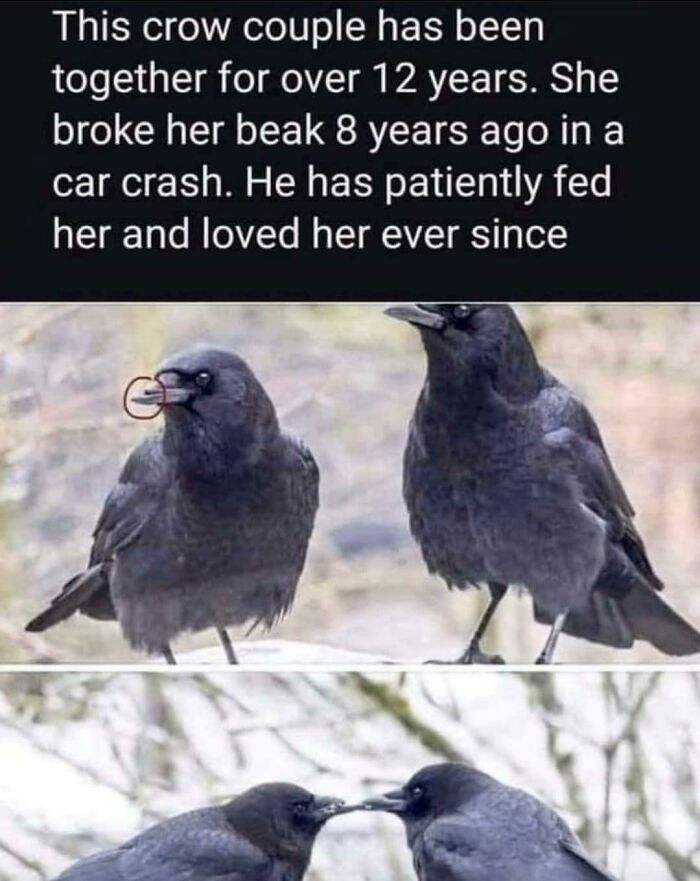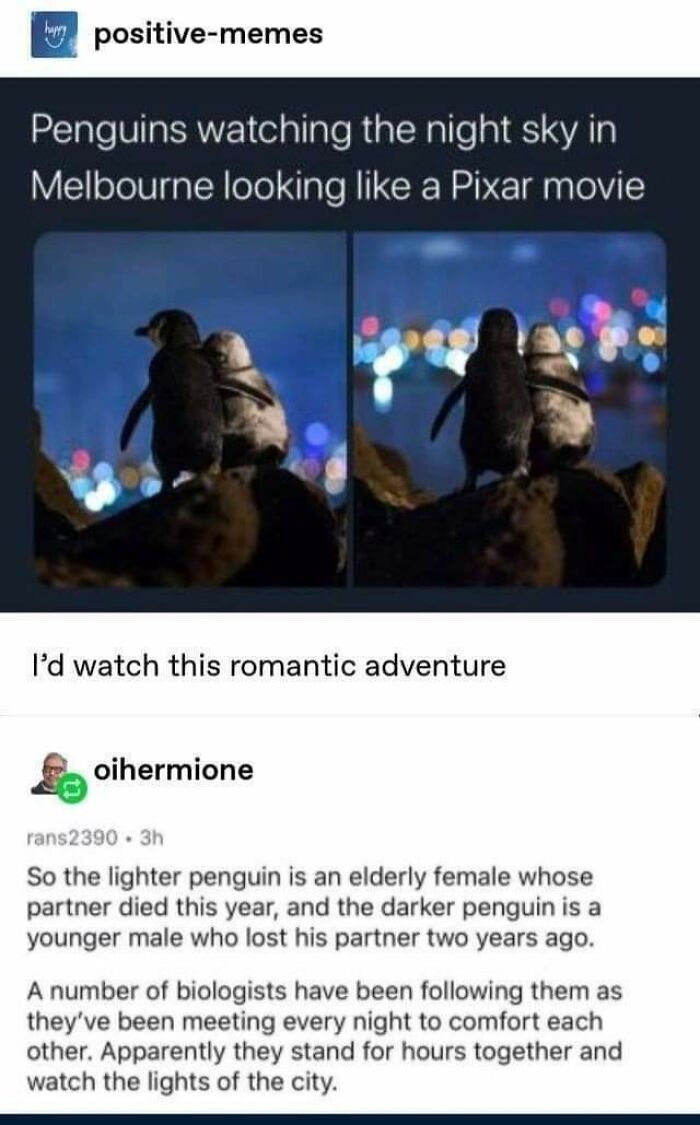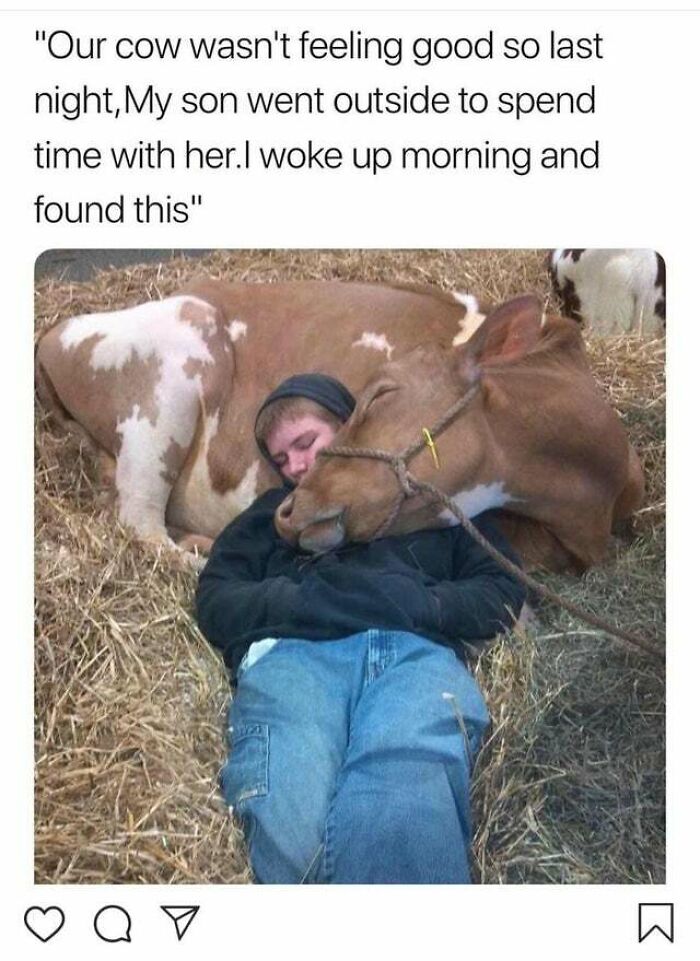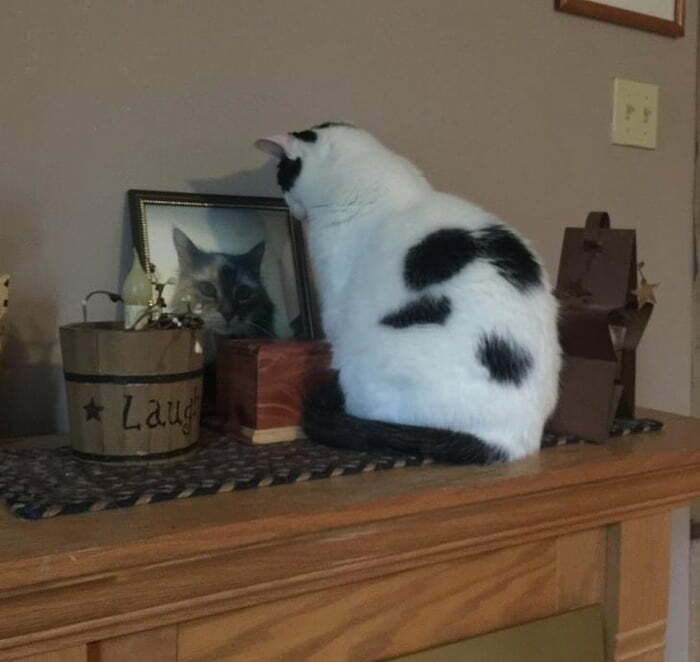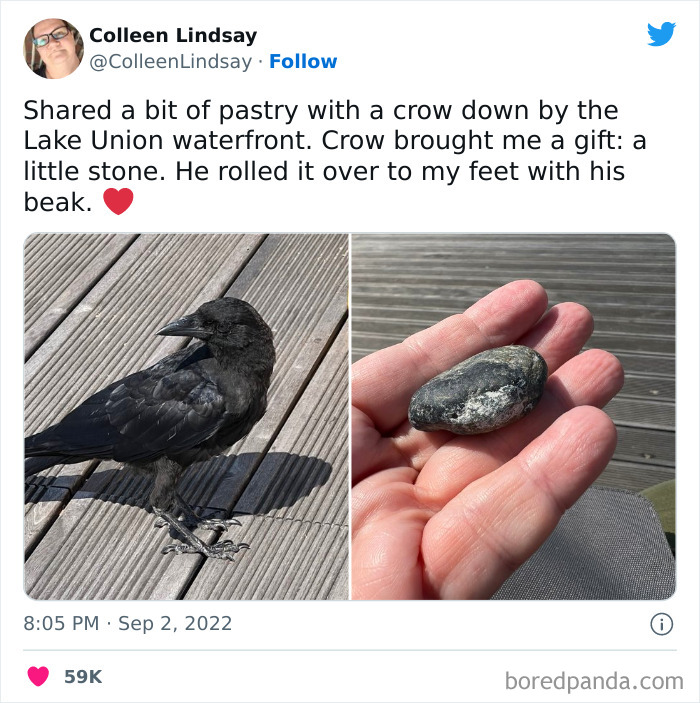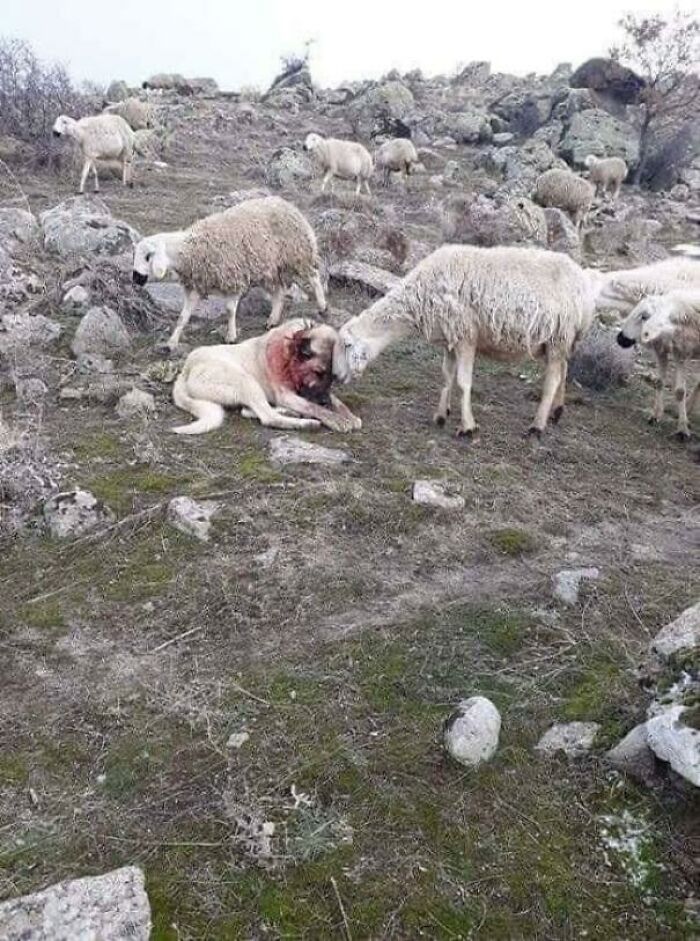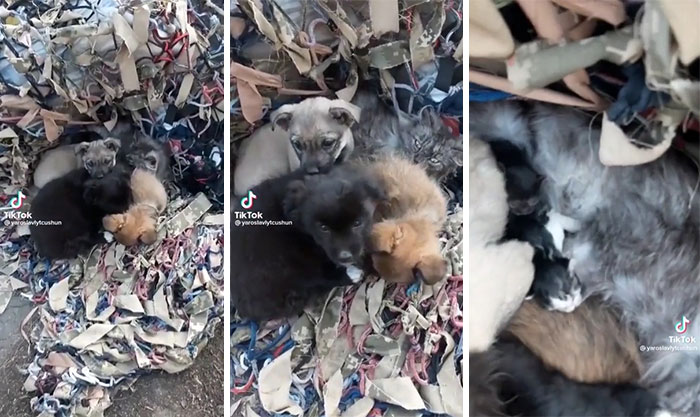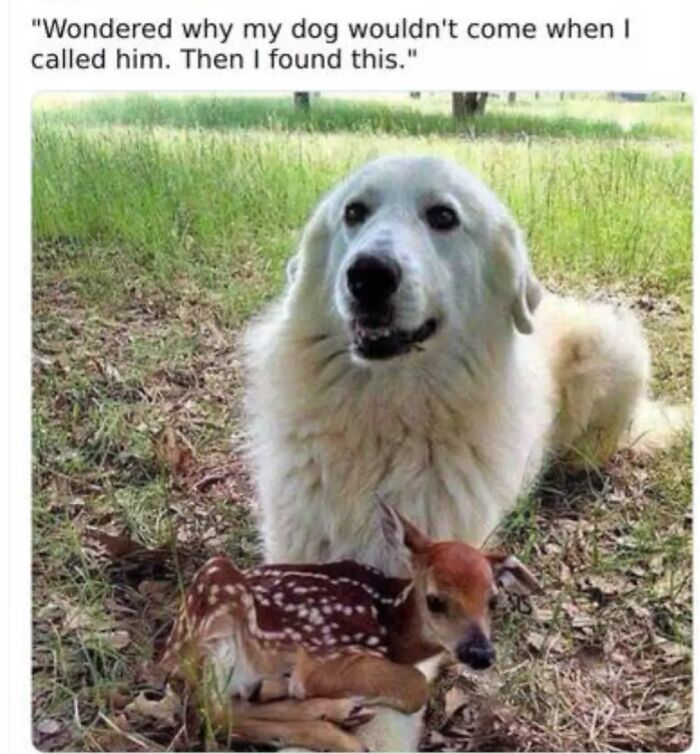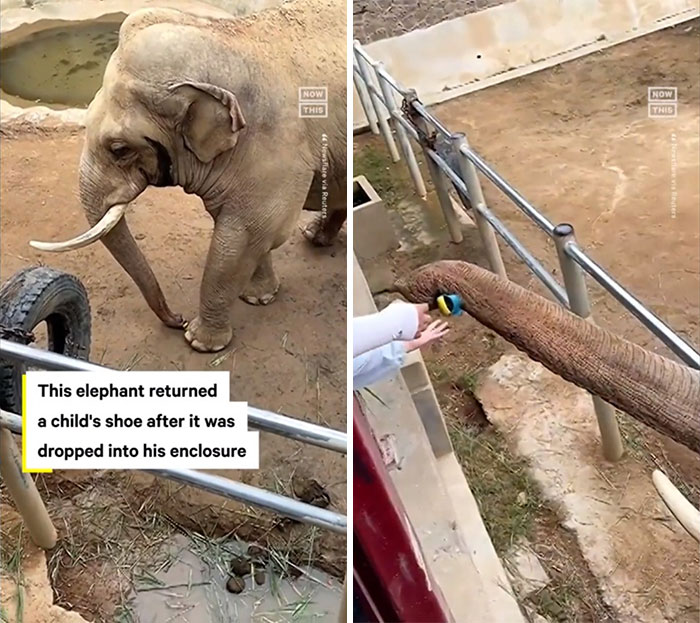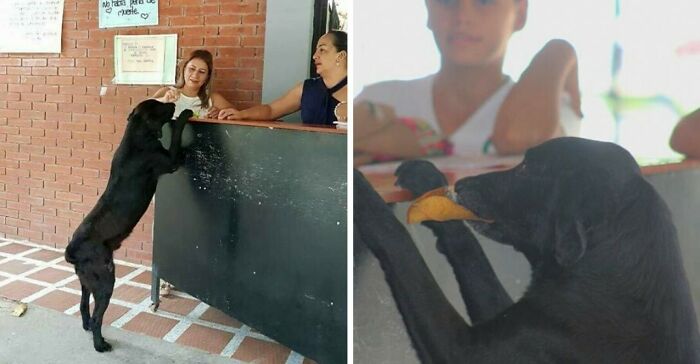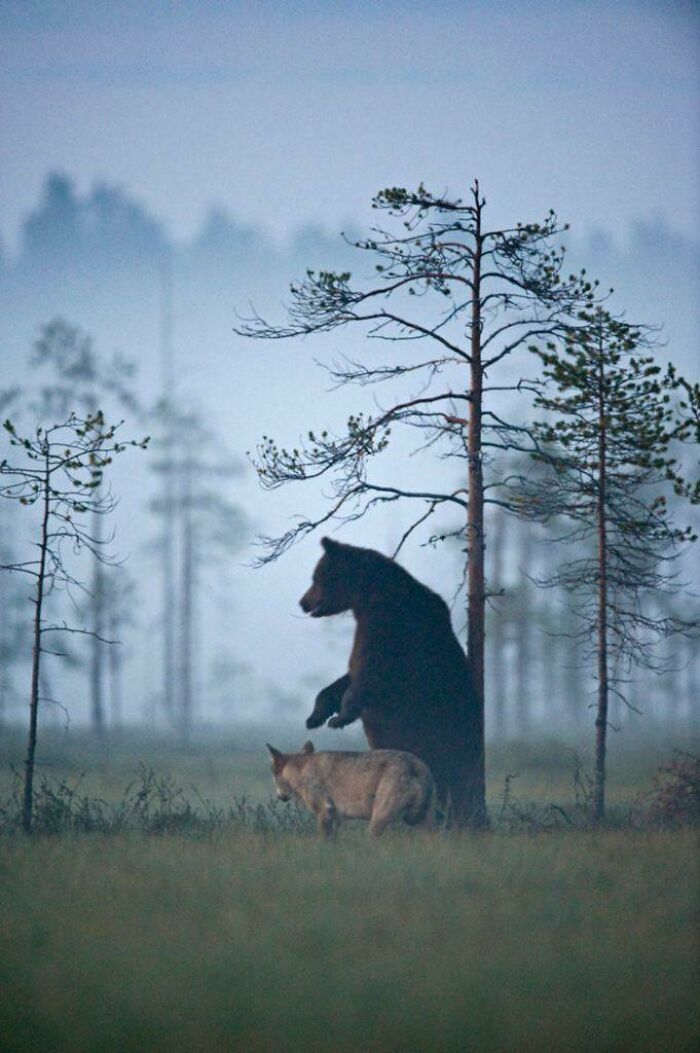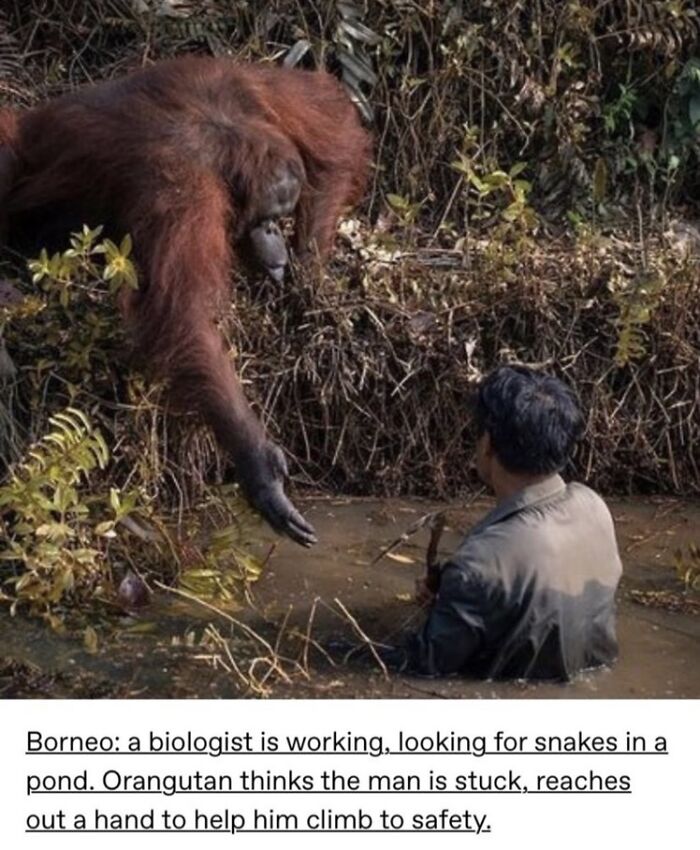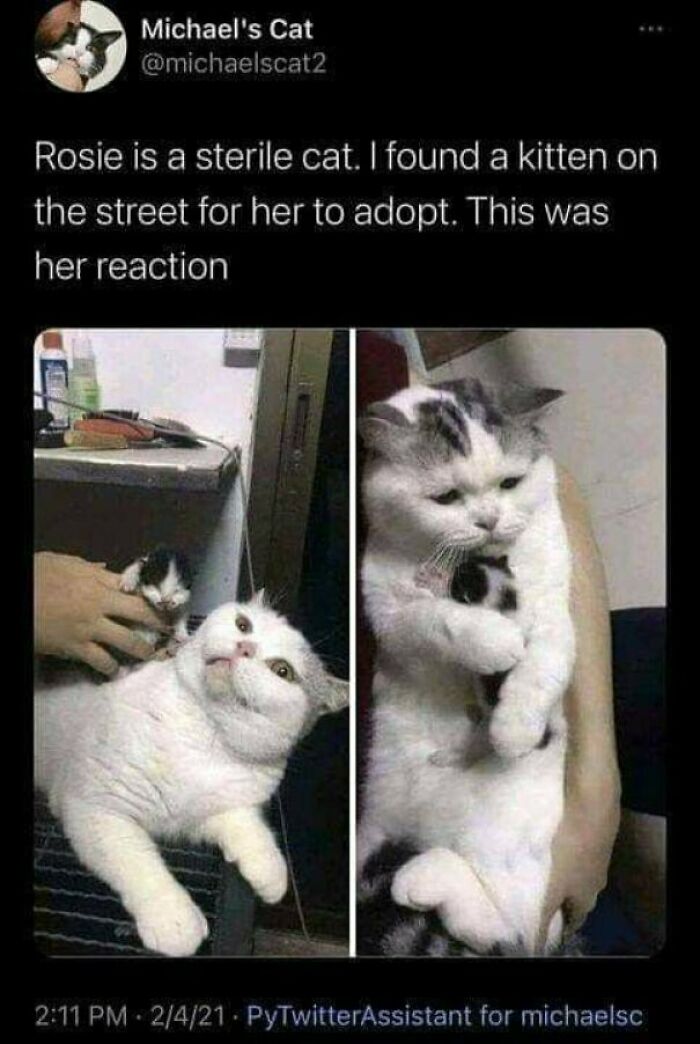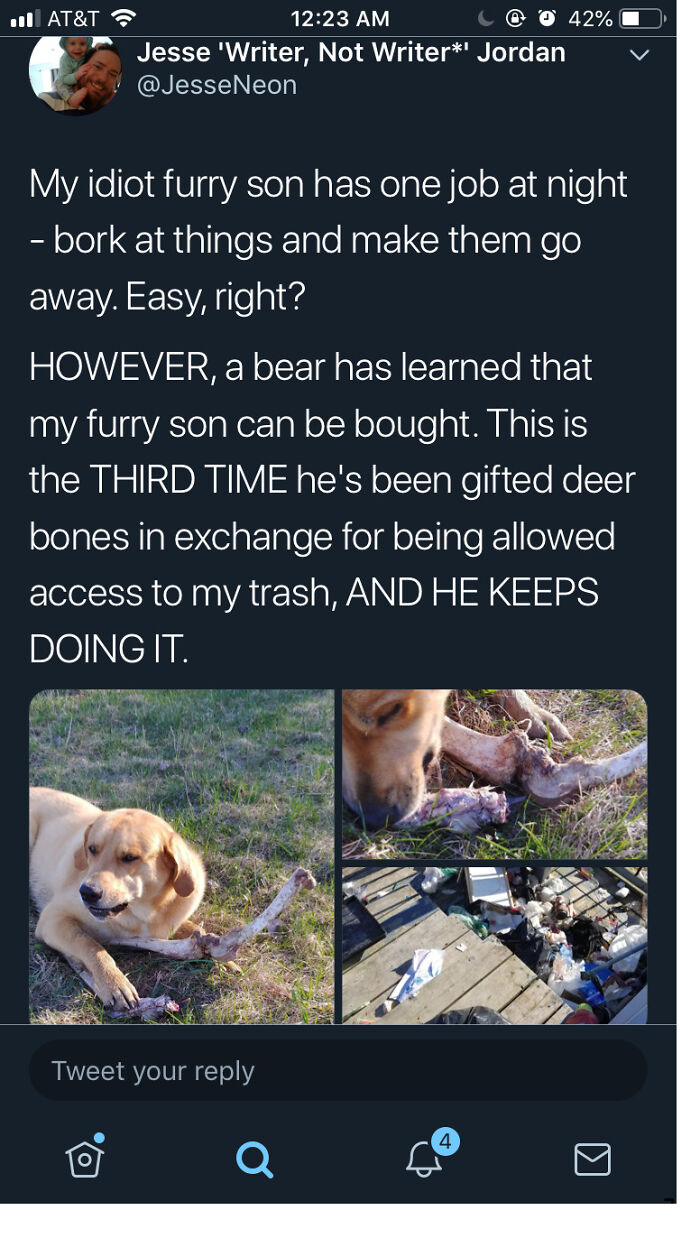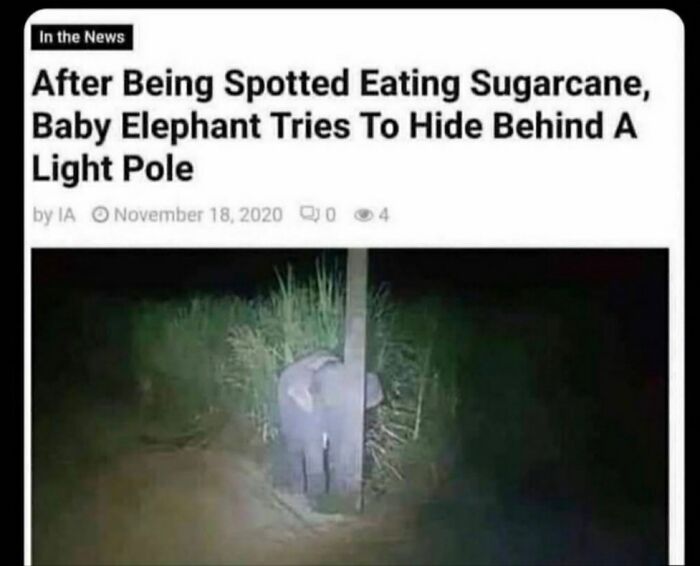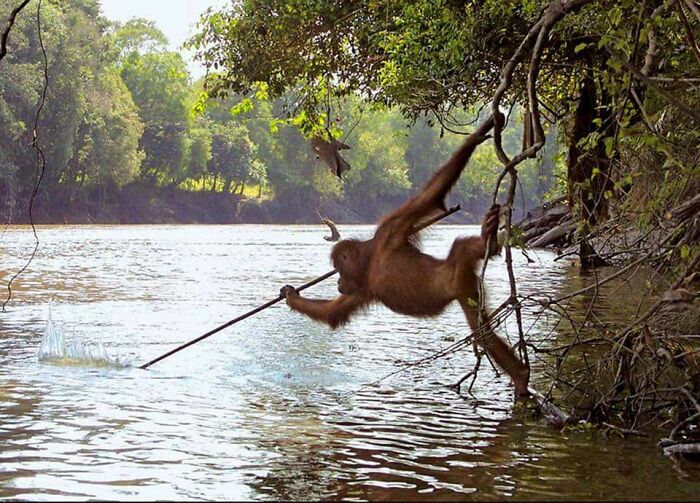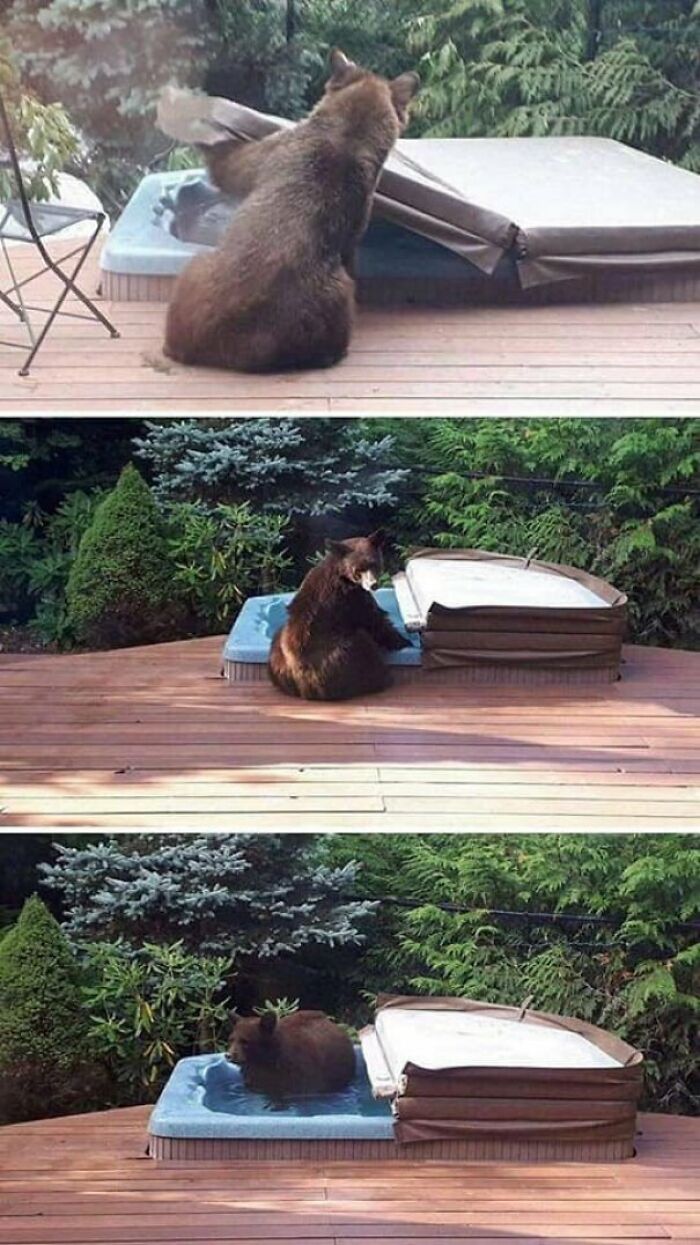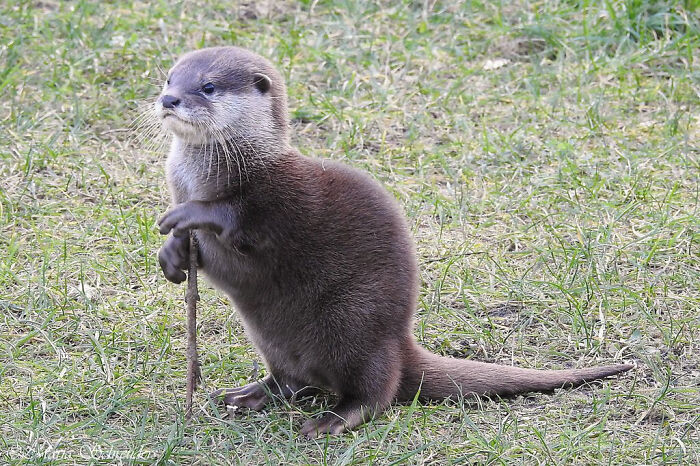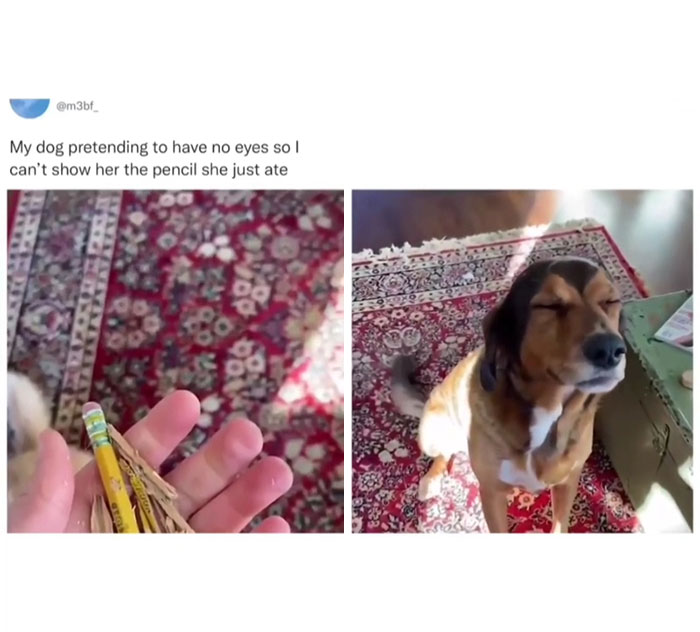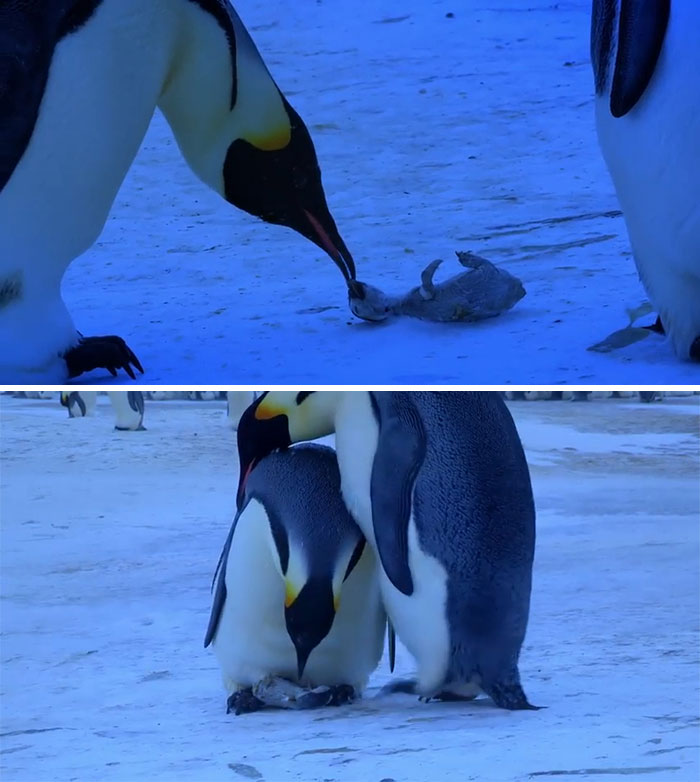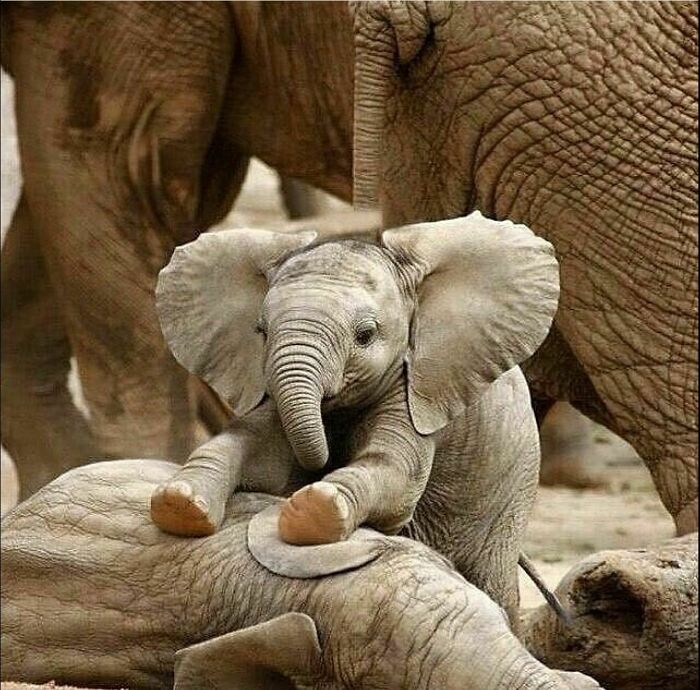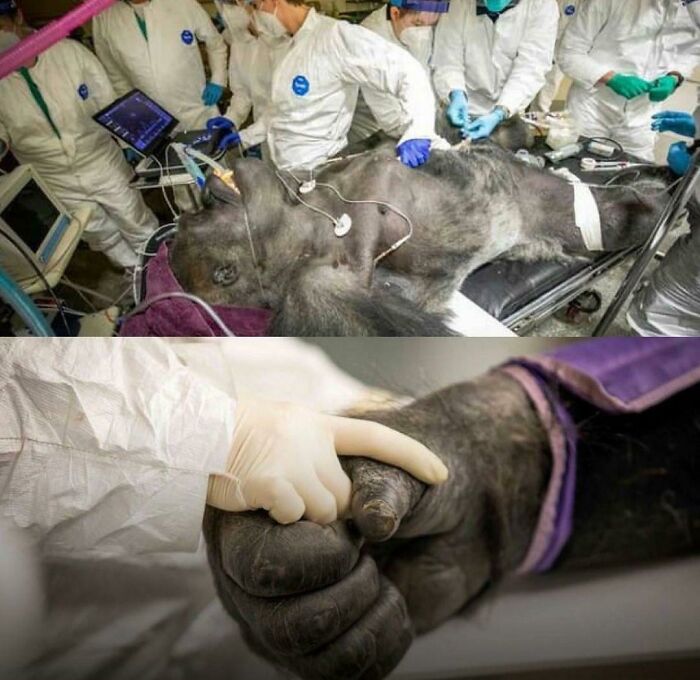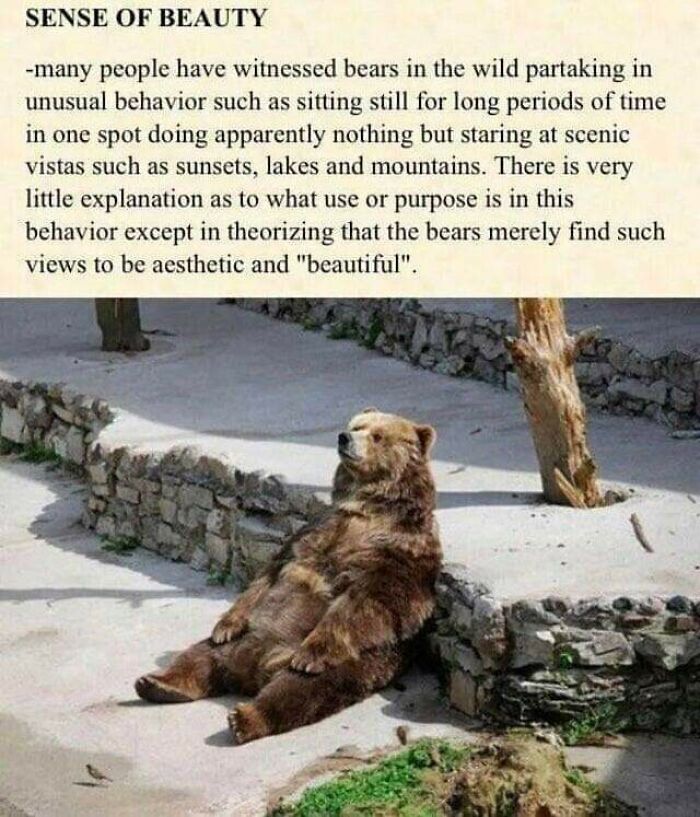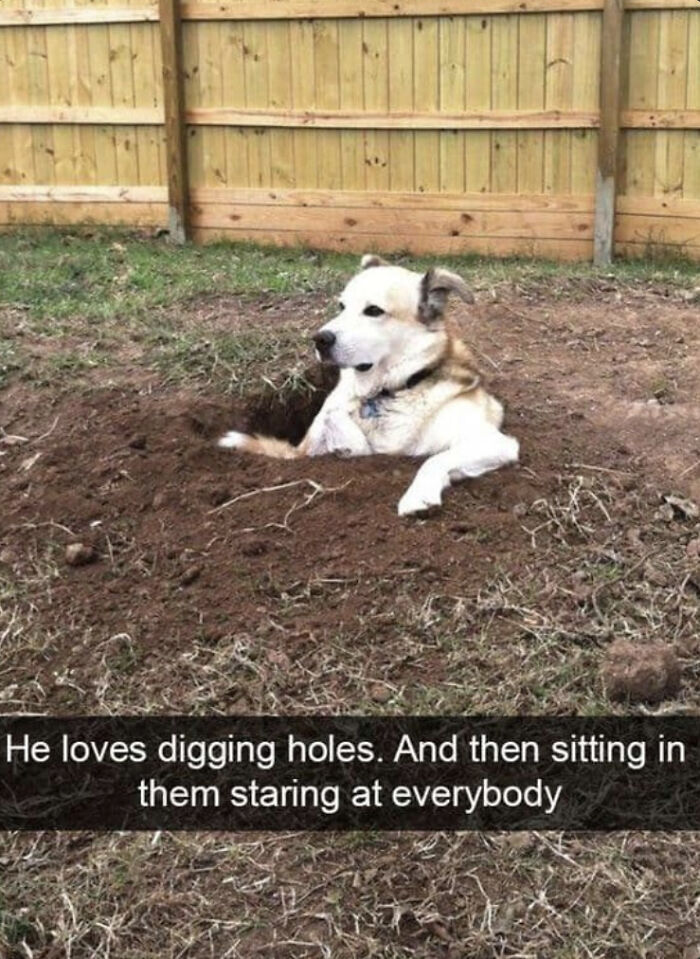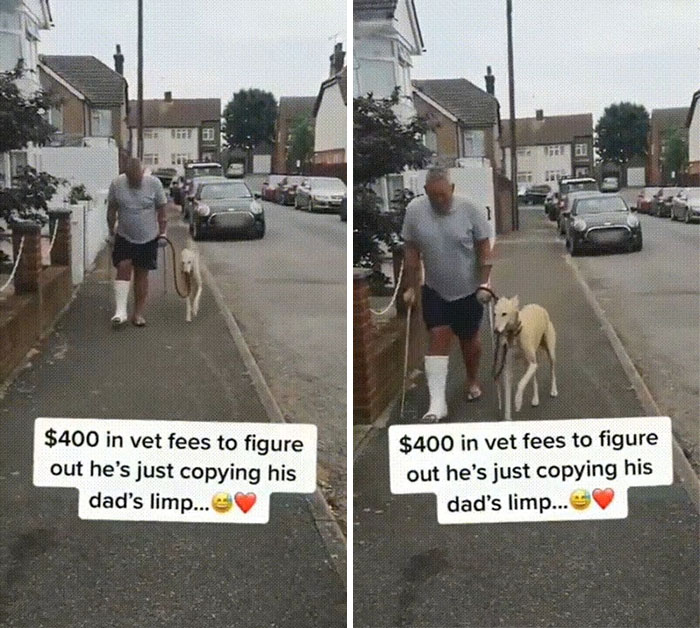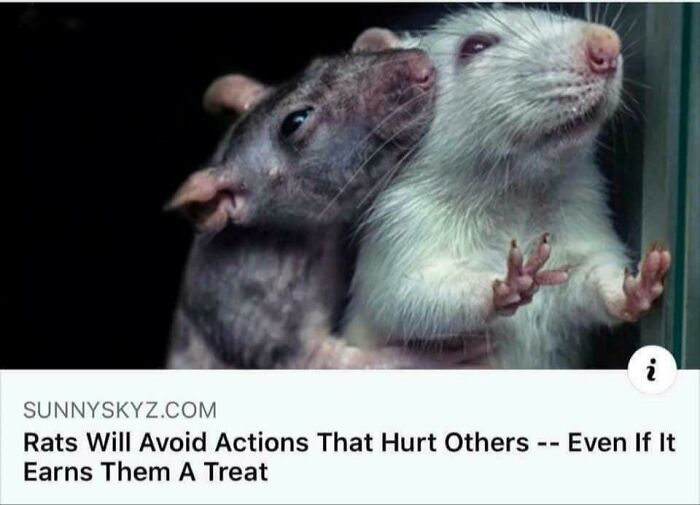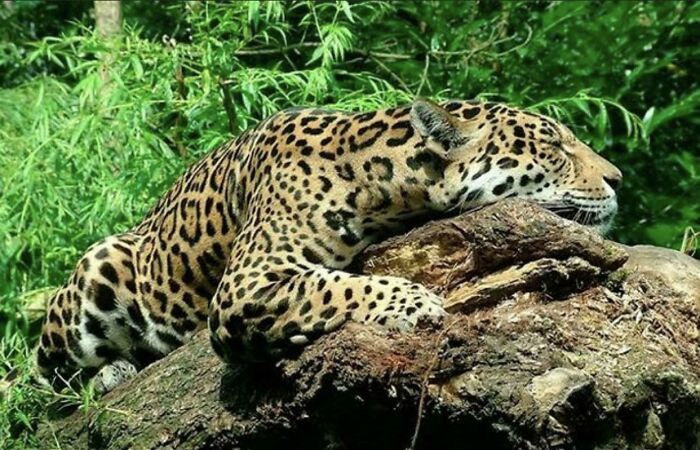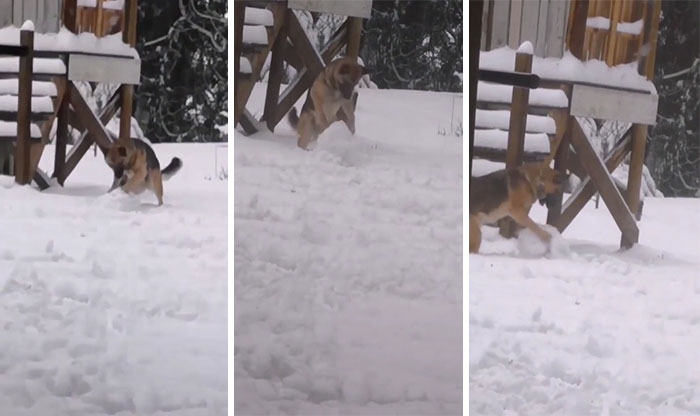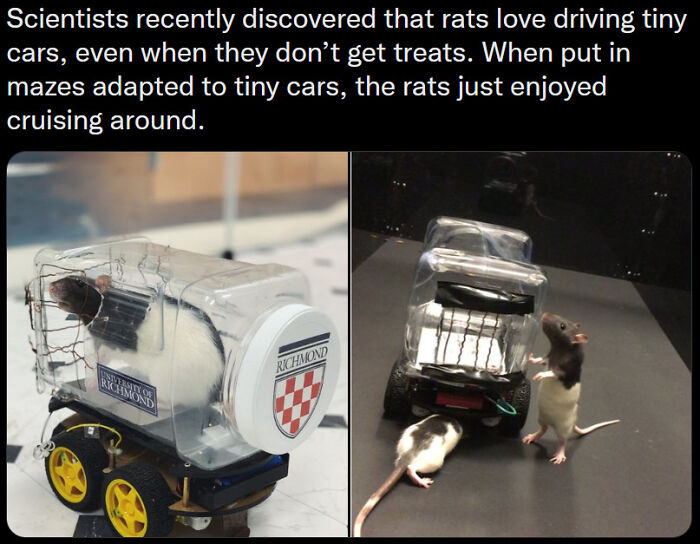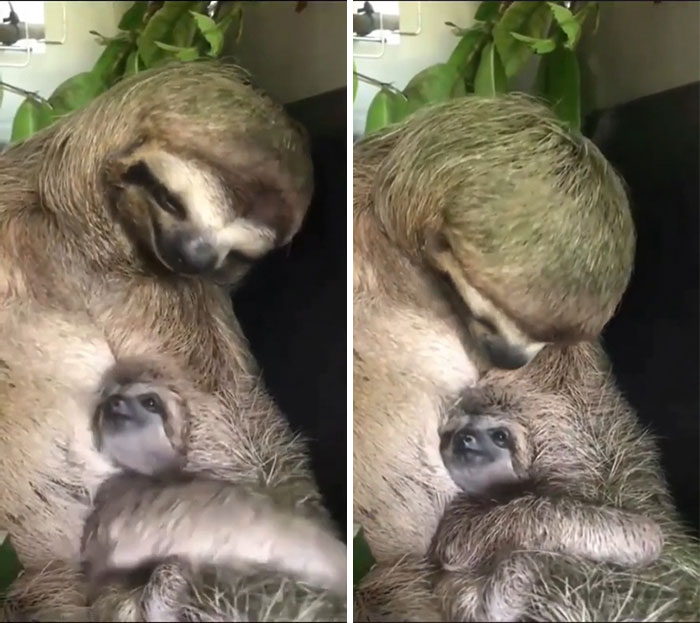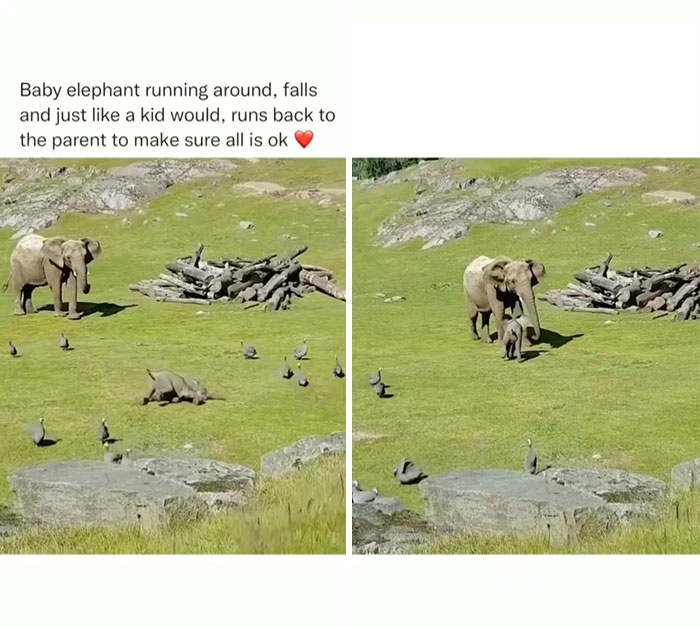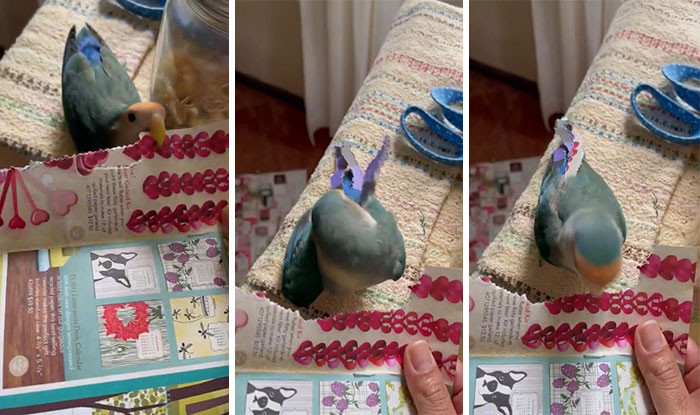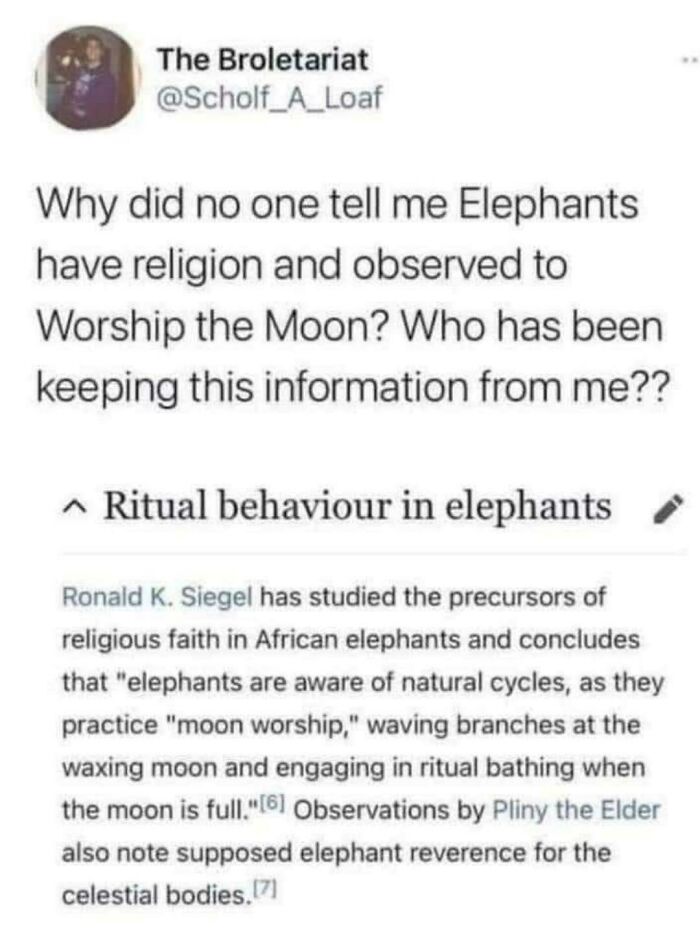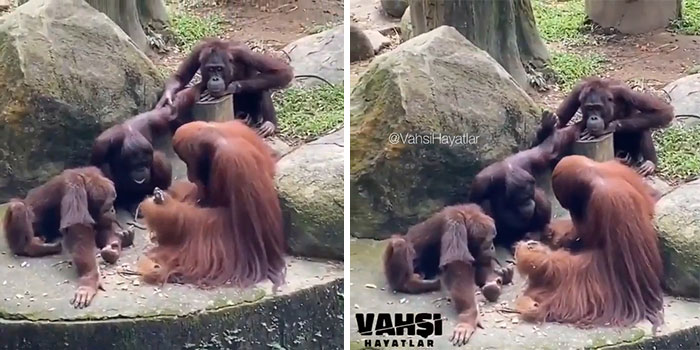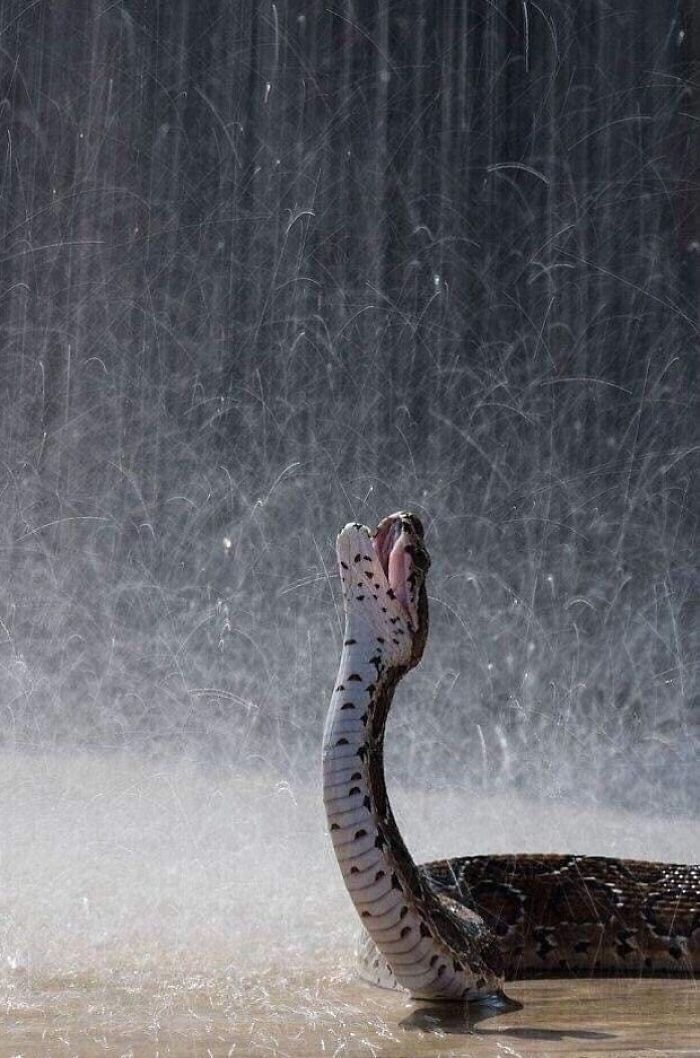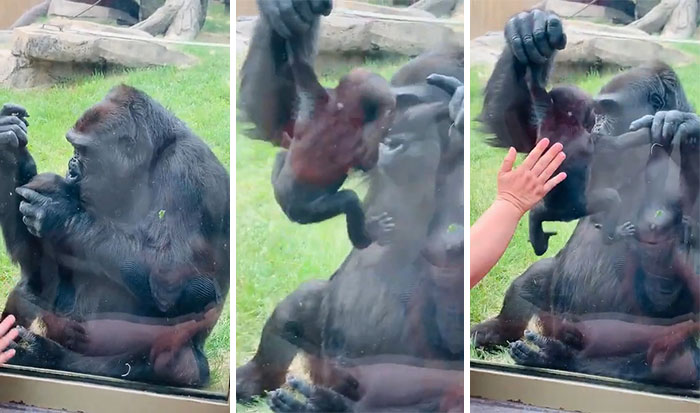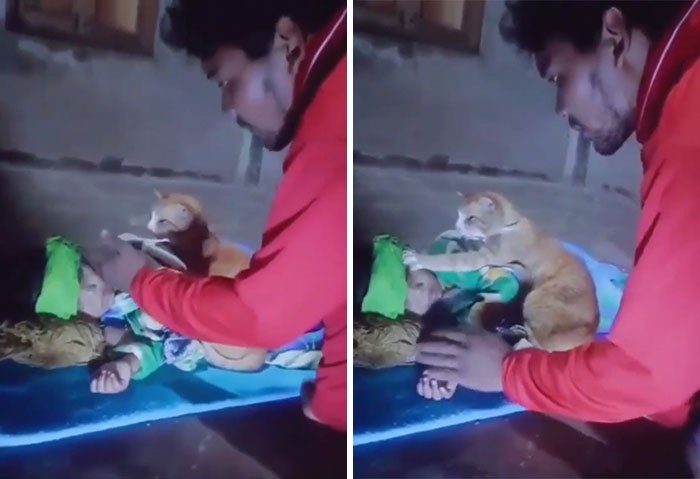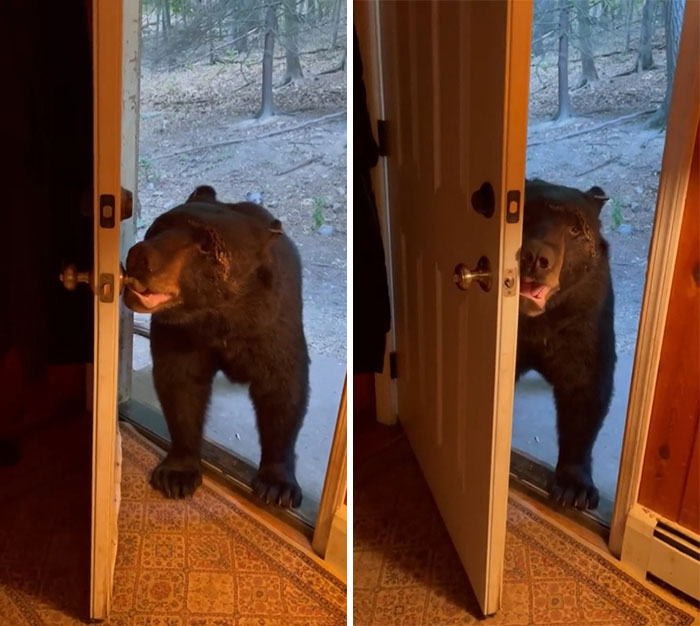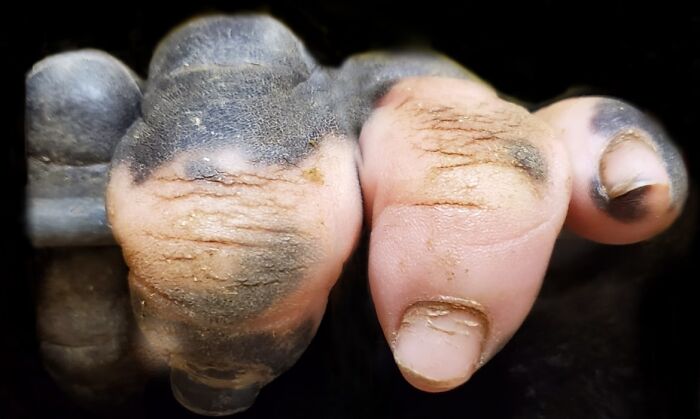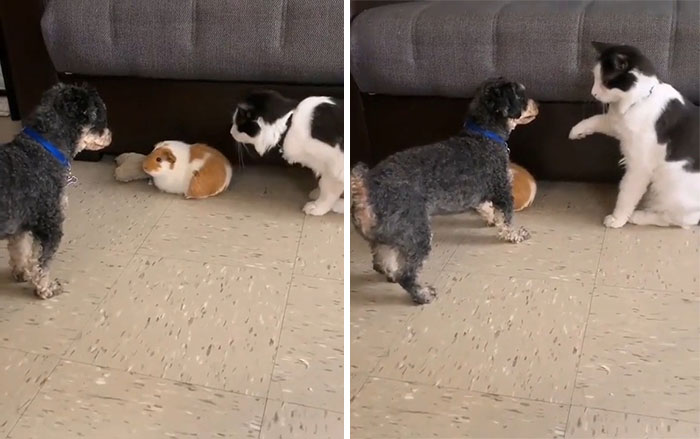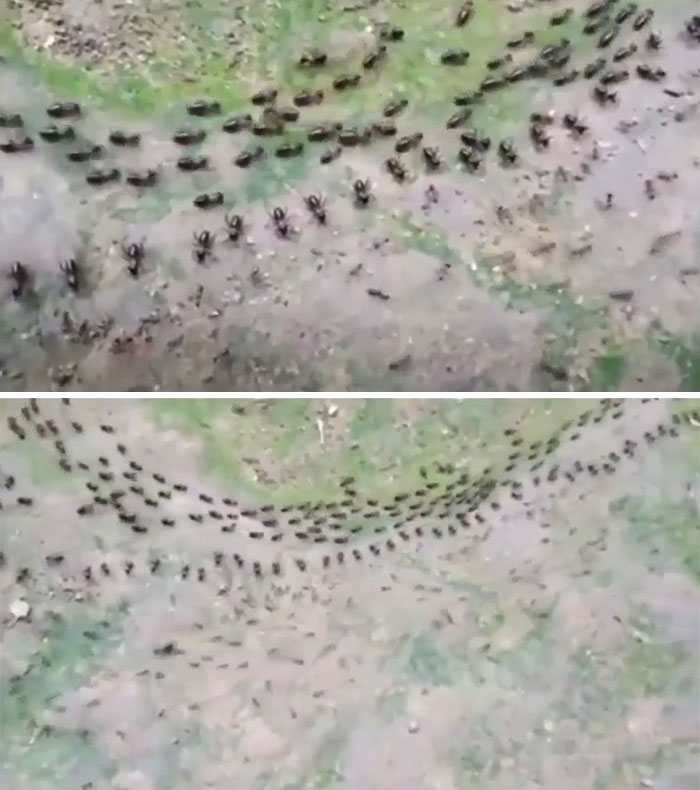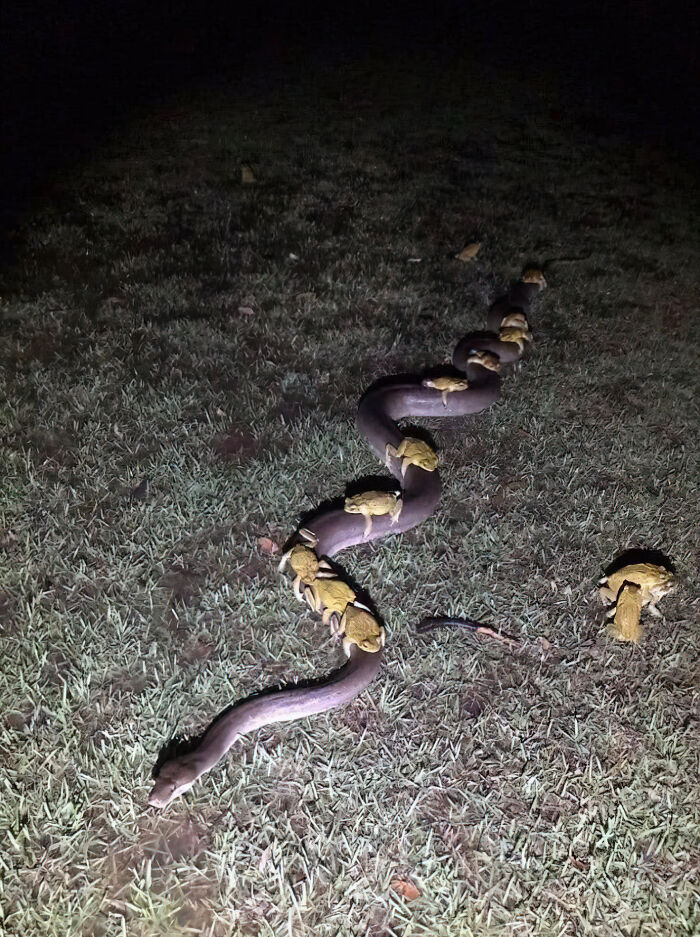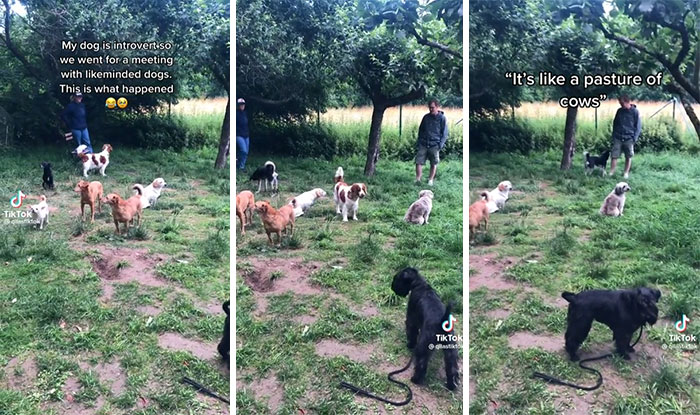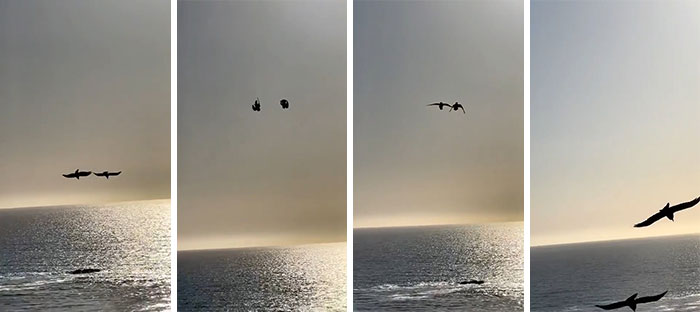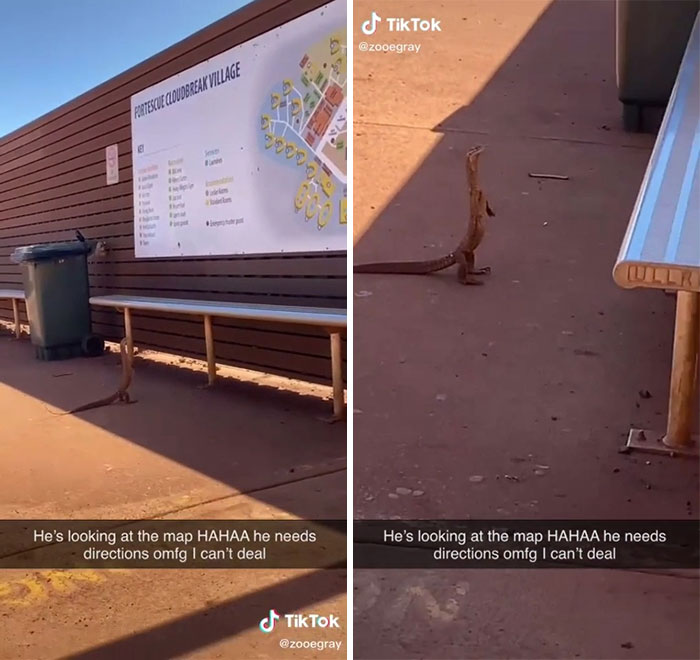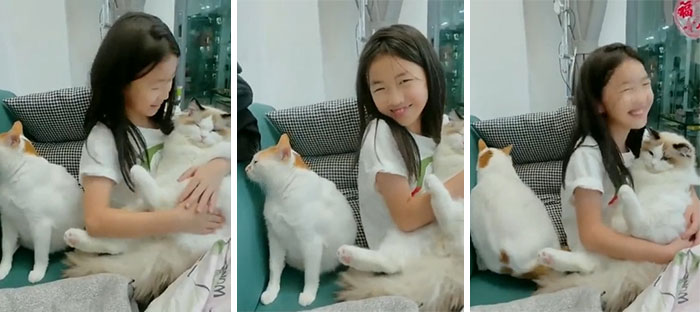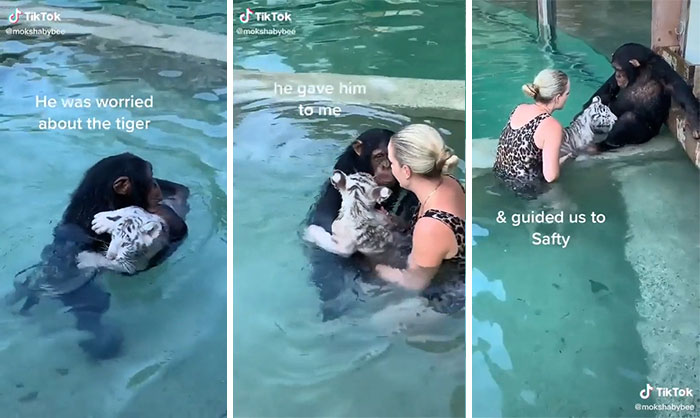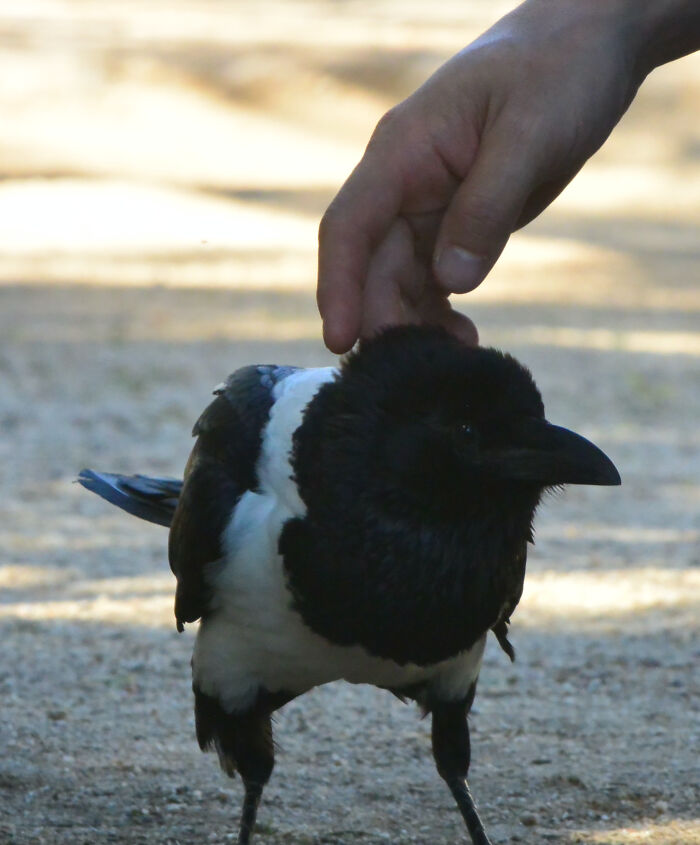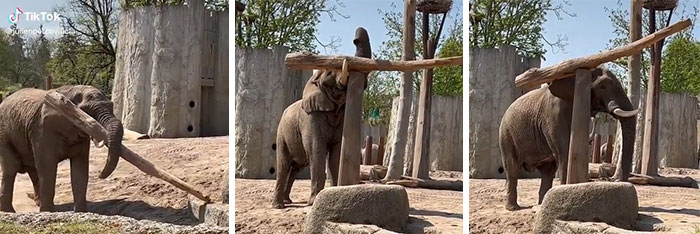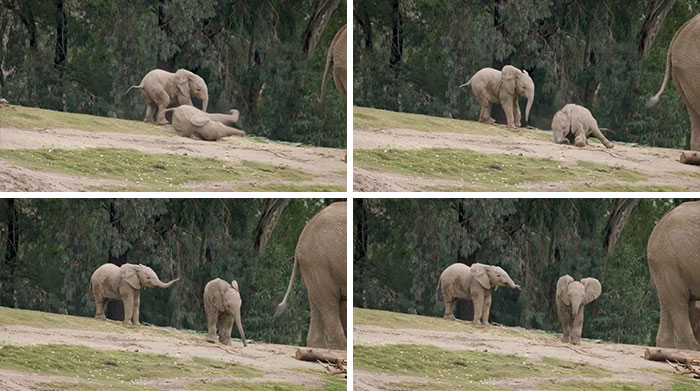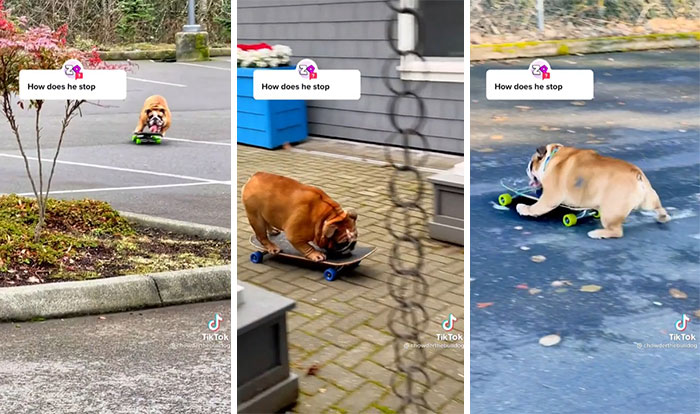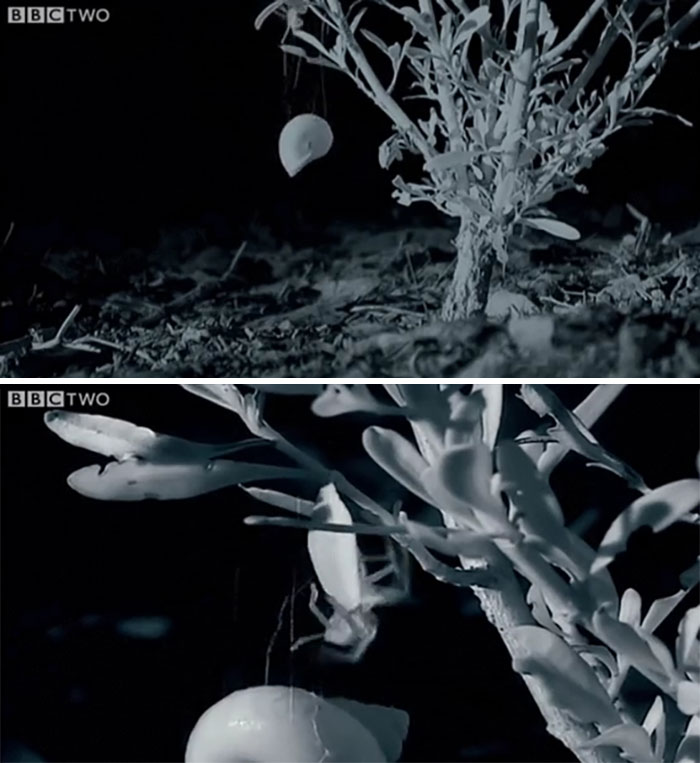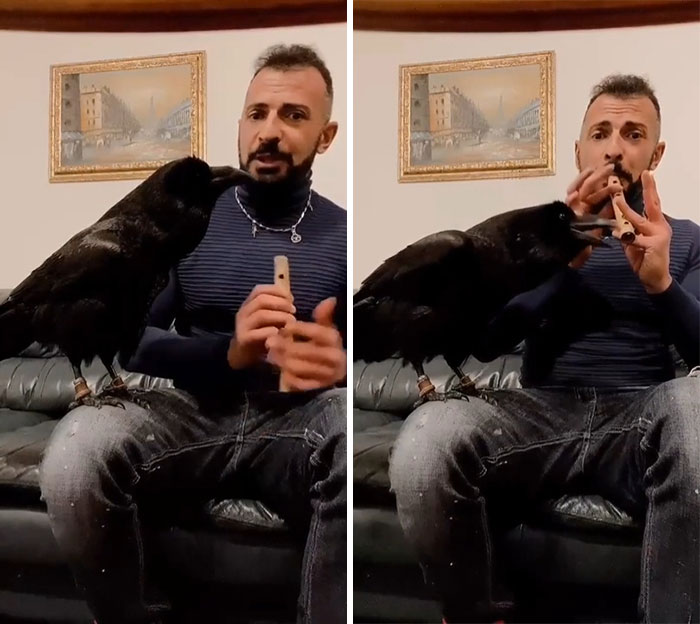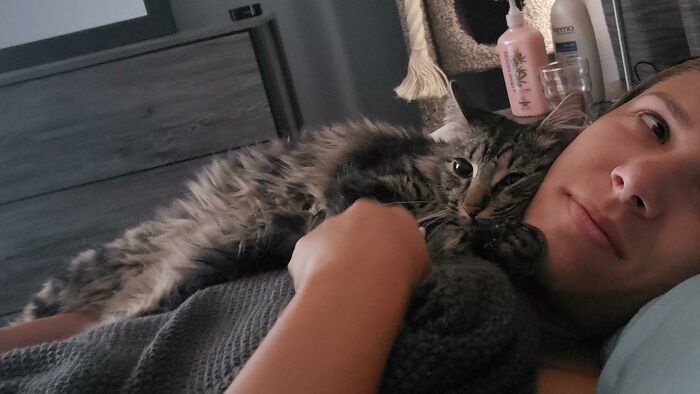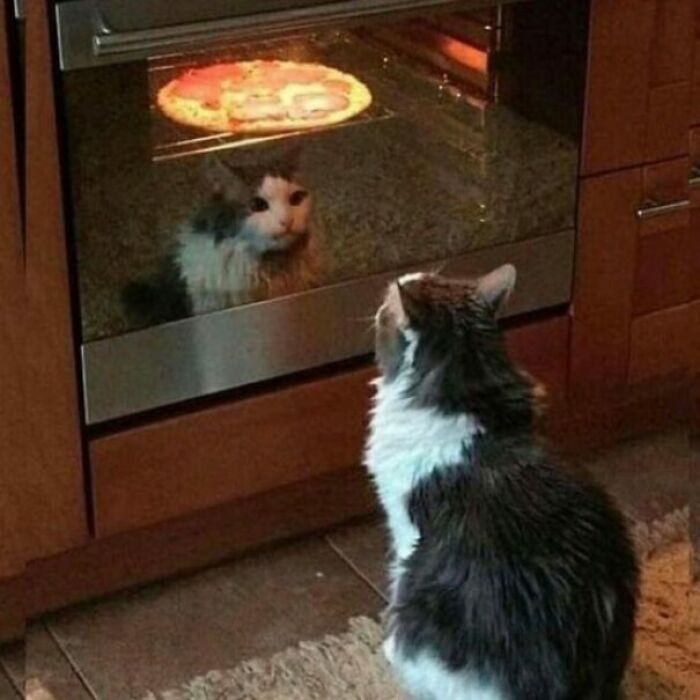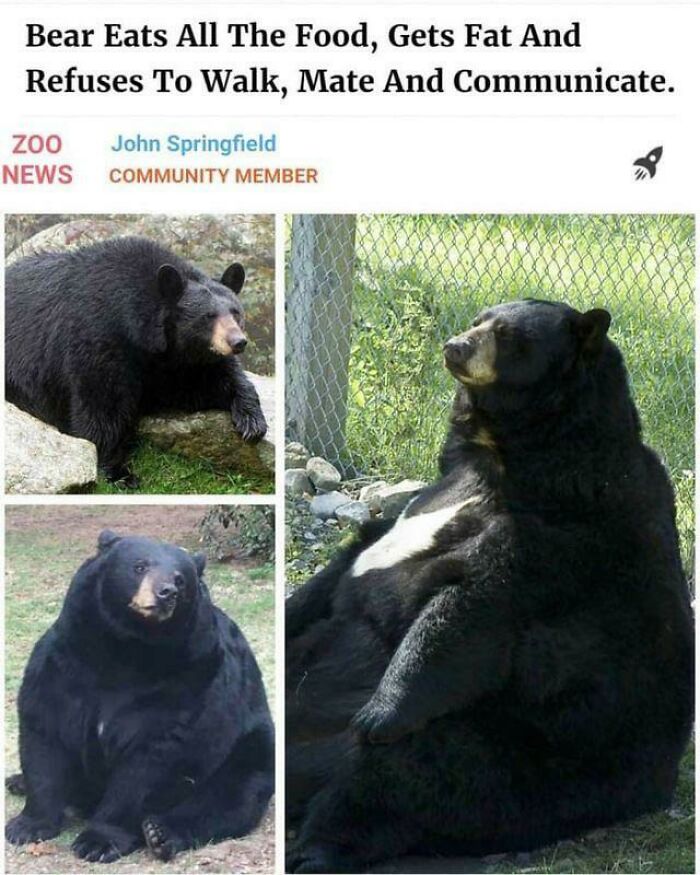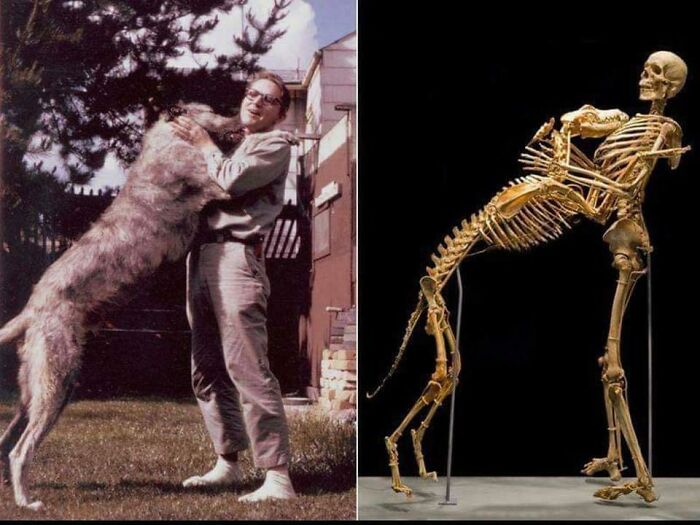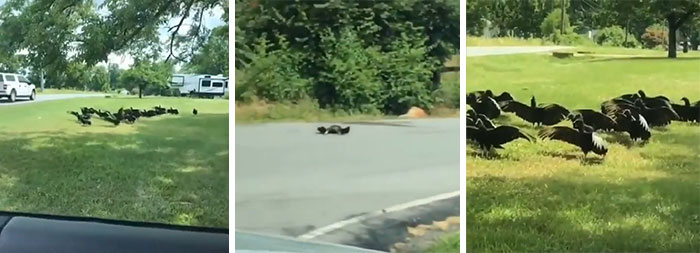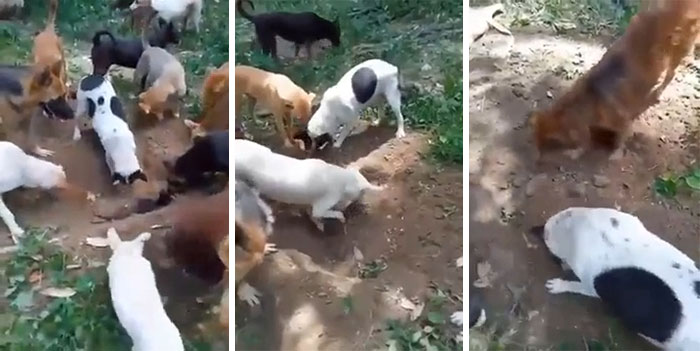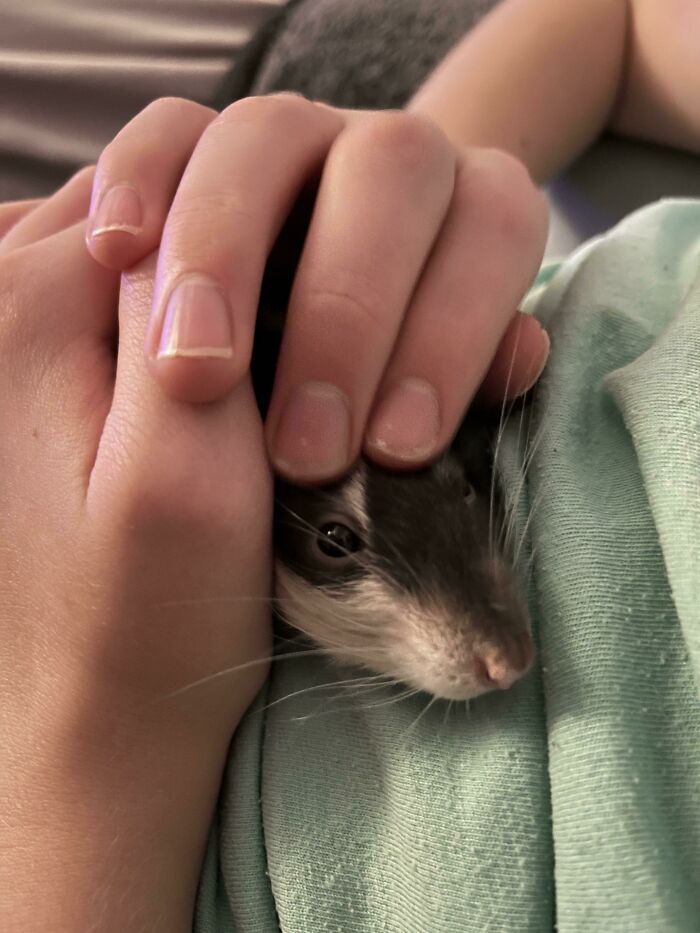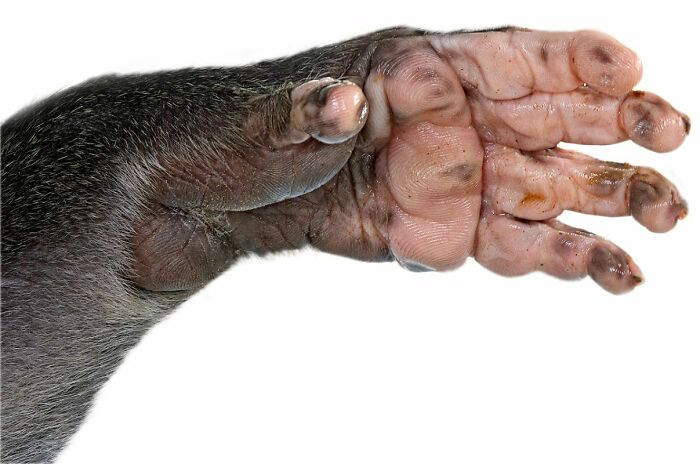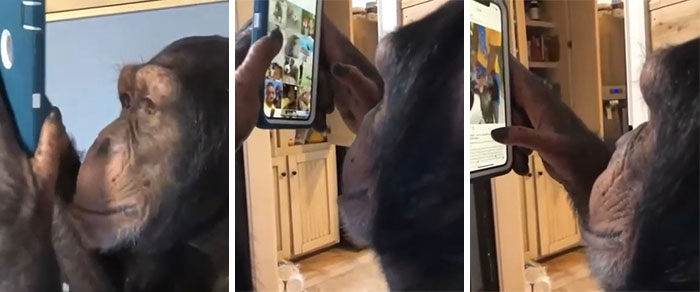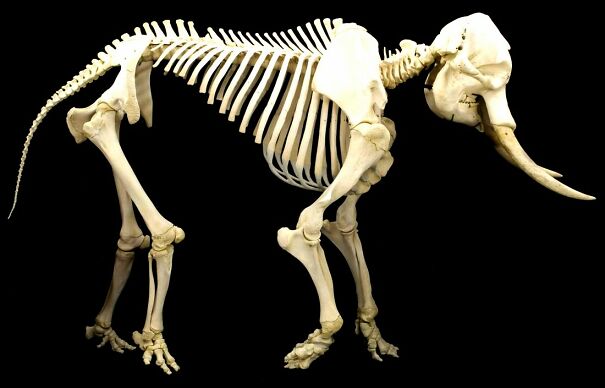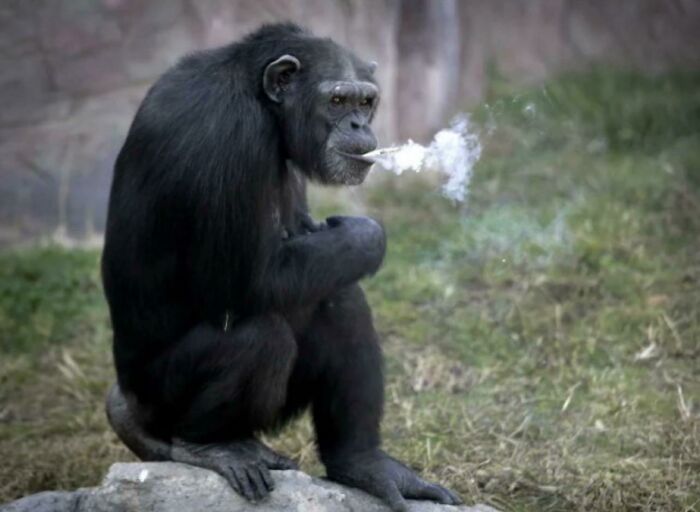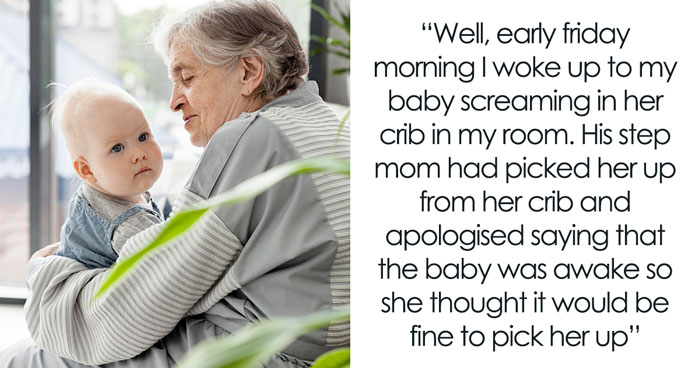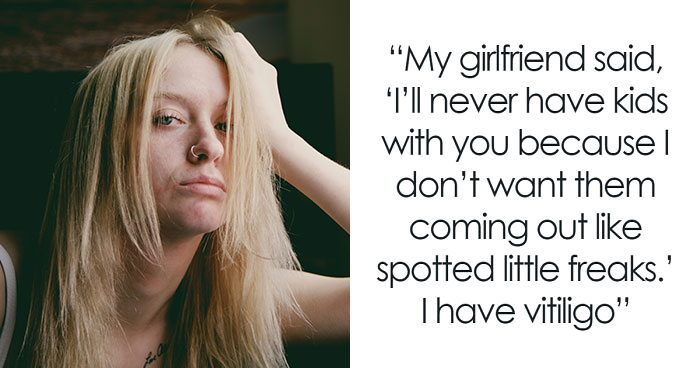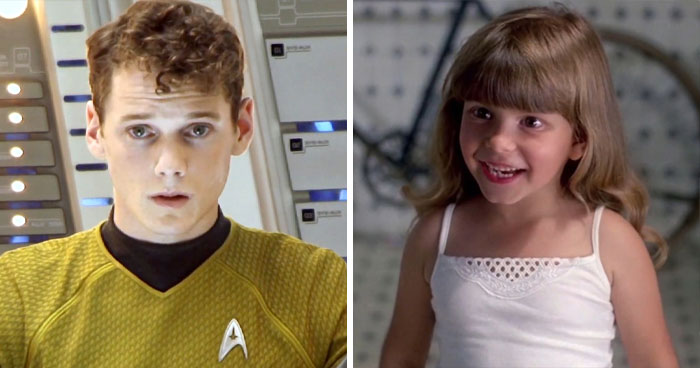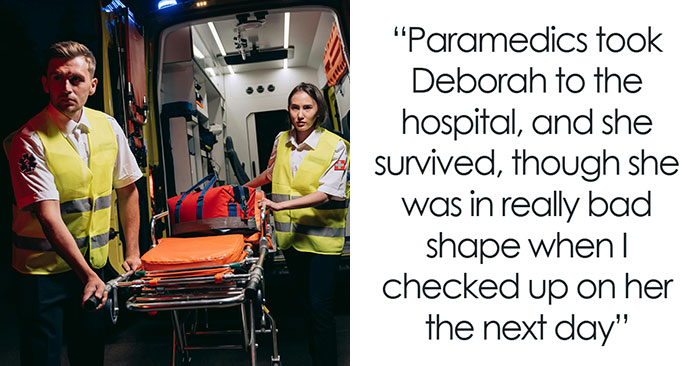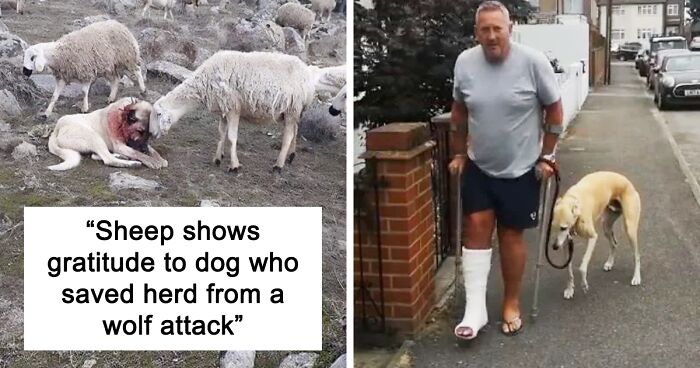
545Kviews
“Acting Just Like Us”: 50 Times Humans Were So Surprised By How Much Animals Can Do, They Just Had To Share These Pics Online
Many of us grew up watching films and TV shows featuring adorable and relatable animal characters who spoke our languages, drove cars, worked the same jobs our parents had, and had the exact same conversations we had with our friends and families. And while we knew deep down, even if we didn’t want to admit it, that our pets and the squirrels running through our backyards were probably not actually attending elementary school and discussing current events, a little part of us might have wished that animals could act like humans...
Well, today's your lucky day! Because the Conscious Like Us subreddit is dedicated to sharing examples of times animals really did have more in common with us than we might have expected. We’ve gathered some of their most heartwarming and wholesome posts down below, so be sure to upvote the pics you find most surprising or compelling and feel free to share in the comments any times you’ve witnessed animals acting suspiciously like people.
Keep reading to also find an interview we were lucky enough to receive from Jade Fountain, an internationally trained animal behavior consultant. Enjoy this precious list, and then if you’re looking for even more proof that our favorite animated animals might actually be realistic, you can find Bored Panda’s last article on the same topic right here!
This post may include affiliate links.
Some Amazing Details About The Little Girl Who Fed Crows And The Gifts They Gave Her As Thanks
To gain more insight about why and how animals can remind us so much of ourselves at times, we reached out to Jade Fountain, an internationally trained animal behavior consultant and the owner of Animal Behaviour Matters in Australia. We asked Jade if animals are more similar to us than many of us realize and asked if she could share some of the key difference between human and animal behavior. "Animal play style is very familiar to us in many species," Jade told Bored Panda. "Many species of mammals such as stoats and weasels, and many birds such as ravens and cockatoos will slide down snowy hills or icy rooftops, bears and dogs down slippery slides in playgrounds. Cattle and horses will invest their efforts into barging giant inflatable balls in a soccer-esque fashion and wild coyotes often find dog toys laying around in yards and instigate a squeaky toy fuelled play session akin to their domestic cousins."
Our feathery friends can also be quite intelligent. "Parrots often surprise people with their clever strategies to access high value food and drink," Jade noted. "Macaws have been observed opening the tops of coconuts, tipping them upside down over their heads and drinking from the fruit held in their claws. Cockatoos and other parrots will learn to do this with a plastic bottle of juice, unscrewing the lid with their beak and tipping the bottle just enough to pour small sips of juice out. Ravens, crows and parrots will also adjust the length of sticks to access a nut out of reach on the other side of a wire fence; or drop rocks into a container of water to push up the water level and access a floating peanut. Crows in Japan have been known to sit above traffic lights at pedestrian crossings and drop hard-shelled nuts, and then wait until the red light stops traffic to access the nuts once the cars have run over the shell."
Awwwwwwwwww
"Just like us, many animals like to feel comfortable," Jade says. "No, your dog is not being dominant when he jumps on the couch, he is looking for the comfortable spot – just like you choose the sofa instead of the floor," she explained. "Horses will also lay down on mattresses, while cows and elephants love a pile of sand to lay on, and cats will look for the warm spots (recently starlink dishes have been popular). Orangutans and other apes will wear blankets and sacks to keep warm, put-up leaves or covers over their head to shelter from rain."
"Many animals have strategies to hunt and use tools that remind us of ourselves," Jade added. "A number of bird species will use pieces of bread to attract fish to the surface so they can catch them. Animals will cooperate with other members of their social group to share in the spoils of food if it takes two to operate a contraption to pull food closer. Elephants, primates, wolves and even porcupines will work together to access a treat where both have to do something at the same time. Primates understand the concept of fairness when a food with higher value is given to their friend, but they receive a treat less than adequate."
Being There For Eachother
We were also curious if there were any misconceptions about animal behavior that Jade wanted to dispel. "Many misconceptions about what behavior means can influence how we respond to them," she noted. "The guilty dog misconception is one myth that needs to be cleared up. Researchers have debunked that squinty eyed, sorry look that dogs display when owners find chewed items or a mess when they return home. Instead, dogs will react this way in response to a frowning, angry owner scolding them with a stern voice, associating this human body language with an event earlier in life where they got into trouble. Dogs in a study would show the famous ‘guilty look’, whether they were responsible for the mess or whether a human researcher had stolen food or made a mess. Dogs are showing appeasing behaviour in response to the angry human, not connecting the human scold with the mess made hours before."
Apparently, goldfish don't have a three second memory either. "Fish actually have the ability to learn and remember for substantial amounts of time," Jade says. "They can learn to respond to a cue to swim to a different area of their tank, learn to push a ball through a basketball hoop in the water, swim through obstacles and in many aquariums, they learn to respond to a signal as their name and can swim over to their aquarists for a health check. Researchers have shown fish, octopus and other marine animals feel pain and will press a button or pull a lever to access painkillers if they are experiencing pain. They also show preferences for things they like and would like more of. Recently, researchers taught goldfish to operate a tank on wheels, essentially teaching the fish to drive the vehicle by swimming towards the edges in exchange for a food reward."
Cow Falls Asleep After Boy Comes To Comfort Them When They Weren't Feeling Well
Jade also told Bored Panda that understanding how animals experience pain and emotions continues to advance with science. "Researchers have trained dogs to lay still in fMRI machines to measure regions of the brain that light up in response to familiar humans, toys, favourite treats, words and phrases and different scents," she noted. "Dogs' brains light up in the same ways humans do in response to similar situations, indicating the similarities in emotions experienced are more alike than different."
"Scientists have developed tests to measure optimism and pessimism in animals to determine their emotions in response to situations. Asking pigs this question depending on what type of bedding they have had access to (comfortable straw or hard, cold concrete) can result in better facilitation of animal housing if we know the choices animals make to feel happy," Jade explained. "Dogs show more optimism when they have been trained with rewards-based methods, compared to dogs that were trained with punishment (they showed pessimism). Dogs also showed optimism when they have taken scent work classes (also known as noseworks)."
A Cat Misses His Sister. He Sits Like This Every Day For Half An Hour. Animals Are Similar To Humans
Blessed Crow
"A feat that groups of lemurs, parrots and even sea lions have been found to match with rhythm matching and song in their vocalisations," Jade added. "Many animals, such as chickens, turtles, bees, fish and dogs are able to count, understand concepts of numbers and make decisions about waiting for a larger reward later rather than a smaller immediate reward. Elephants learning how to disarm electric fences by placing leaves or sticks against them, so they can step over them safely. Gorillas in human care that have learned to exchange items found in their habitat for food rewards, have learned something like dropped money appears more valuable when the human is more urgent in the request to return it – one gorilla tried tearing up the money into small pieces to hand back one at a time, for more rewards."
Sheep Shows Gratitude To Dog Who Saved Herd From A Wolf Attack
Jade also wants to remind readers not to assume that an animal is unintelligent just because they do things differently than we do. "Problem solving depends on the environment we live and our needs based on our abilities – ie, the ways in which a bird solves problems differs from how a horse or a lizard solves problems," she added. "Just because different species value and perceive things differently to humans, does not mean their intelligence or cognitive abilities are any less. In some cases, they prove greater. The famous Albert Einstein quote is worth keeping in mind: 'Everybody is a genius. But if you judge a fish by its ability to climb a tree, it will live its whole life believing that it is stupid'."
"One important thing is that humans need to understand the key body language and postures that a specific type of animal shows in certain situations to better understand why they are behaving the way they are," Jade says. "While we see so many similarities in what we call intelligence, we also misinterpret many things we see on the internet or youtube because it reminds us of a human smile, or human affection when it may mean something entirely different. Or we laugh at and think a video is funny, but miss the signals that an animal is fearful and scared."
If you'd like to gain even more insight from Jade, be sure to visit the website of Animal Behaviour Matters right here.
No One Left Behind In Ukraine: These Pups Were Found Protecting Newborn Kittens 😍❤😭
This Is Sooo Comfy
We tend to assume that animals have all sorts of limitations because they don’t think and communicate the exact same way we do. But if you’ve ever had a pet, you’ve probably observed them doing some things that you would have expected a child to do, but not a dog/cat/rabbit/lizard/etc. These occurrences are happening all the time though, and that’s what the Conscious Like Us subreddit aims to highlight. The community, which has a whopping 2.5 million members, states, “Here we discuss animal intelligence, emotion and consciousness.” Oh yeah, and they share some pretty adorable photos too.
They even share a quote from the The Cambridge Declaration of Consciousness, which states, “The absence of a neocortex does not appear to preclude an organism from experiencing affective states. Convergent evidence indicates that non-human animals have the neuroanatomical, neurochemical, and neurophysiological substrates of conscious states along with the capacity to exhibit intentional behaviors. Consequently, the weight of evidence indicates that humans are not unique in possessing the neurological substrates that generate consciousness. Nonhuman animals, including all mammals and birds, and many other creatures, including octopuses, also possess these neurological substrates.” That's a really fancy way of saying we aren't special; animals are conscious too!
Elephant Returns Child's Shoe That Fell Into Zoo Enclosure
A Dog In Colombia Tried Purchasing Food With Leaves After Observing Students Buying Food
A Male Brown Bear And A Female Grey Wolf Were Documented In 2013 Hunting Together, Walking Together And Sharing Carcass Meals With Each Other During The Evenings
There has long been a debate about whether or not animals have feelings and can display empathy, but according to Dr. Marc Bekoff, professor, author and animal rights activist, “Non-human animals are amazing beings. Daily we’re learning more and more about their fascinating cognitive abilities, emotional capacities and moral lives. We know that fish are conscious and sentient, rats, mice and chickens display empathy and feel not only their own pain but also that of other individuals.”
We shouldn’t just brush animals aside, assuming all of their actions are driven by instincts. Many of them think and feel and have relationships with one another. In fact, the University of West Alabama notes that emotions have played a pivotal role in helping humans evolve over time, and likely many other species as well. When it comes to empathy, for example, it appears to be an “evolutionary mechanism to maintain social cohesion” in a variety of species, says Dr. James C. Harris at John Hopkins University.
A Bit Of An Anthropomorphization In The Description, But Certainly Interesting
Be Like Rosie
Animals Engaging In Trade
Both the dog and the bear are very smart. The dog gets a free meal from the bear and the bear has free reign in the trash
If you’re looking for proof that animals can exhibit empathy, just look to one of the most wise creatures, the elephant. Elephants are known to grieve the loss of their own herd members, having burial traditions and showing their sadness physically, but they can even grieve the loss of a human. When conservationist and author of The Elephant Whisperer: My Life with the Herd in the African Wild, Lawrence Anthony, suddenly died of a heart attack, elephants began showing up at his home to pay their respects. Following Anthony’s tragic passing, his son said that the herd made an appearance every evening grieving.
Lil Boi Lookin Guilty Af
An Orangutan Named Harry That Was Reintroduced Into The Wild From An Asian Zoo Is Seen Spear Fishing After Watching Local Fisherman, 1990s
He Knows Where The Good Bath Is Hidden?
Dogs are another great example of how animals can exhibit empathy. Dogs are commonly used as service animals and emotional support animals because they have a keen awareness of how we’re feeling, and they often do everything they can to help us feel calm and relaxed. No one knows this better than Iraq veteran Benjamin Stepp. He shared with The New York Times that after returning home from two deployments with a traumatic brain injury and various other painful injuries, he was having a hard time focusing during a lecture at grad school. No one in the class noticed his agitation except his service dog Arleigh, who quickly jumped into his lap to comfort him. He said that she always understood and empathized when he was struggling.
Dog Refuses To Leave The Bed And Then Proceeds To Fall Asleep While Look After The Little One
Otter Supporting Itself With A Stick
Dog Fakes Inability To Avoid Punishment
Dogs are considered man’s best friend, but do animals have friends of their own? Many of the photos on this list make it seem like they do, but I was curious what the research says. According to Lydia Denworth, author of Friendship: The Evolution, Biology, and Extraordinary Power of Life’s Fundamental Bond, the building blocks of the human social brain can be found in a variety of other species, including fish, birds, amphibians, reptiles and even crustaceans. This means that the way we experience friendship is not unique to us, in fact it comes from ancient biology. These shared features of the social brain might also be what makes it so easy for us to communicate with other animals, such as dogs and horses.
Penguins Mourning ⚱️
Just As A Human Baby Sucks Its Thumb, An African Elephant Calf Often Sucks Its Trunk For Comfort
Gorilla Clutches Nurse's Hand As He Undergoes Health Check
Some animals even have social etiquette similar to humans, such as apologizing after a quarrel. This is particularly important for animals that need to live in groups for survival. If you don’t have friends to look out for you, it might be very tough out in the open sea or in the Sahara. Dolphins have been known to touch flippers to acknowledge one another, and hyenas have been seen meeting their pack with friendly licks, sniffs and groans to make up after a fight. Chimpanzees will often kiss to get back on good terms, after the appropriate amount of time avoiding one another and sitting apart after a fight. Now that one sounds like a painfully familiar experience. We're not so different from animals after all.
Bears May Feel Beauty
The Dog Sits Like A 40 Year Old Man Watching His Kids
Dog Copying His Owner Behaviour
Could have saved a bit of money, taken him to a Labrador to get a "Lab report", and to double check get the cat to look him over for a free "cat scan"... I'll see myself out!
We hope you’re enjoying this wholesome list of animals acting surprisingly similar to us. Keep upvoting the photos that you find most impressive or heartwarming. Then feel free to let us know in the comments anything you’ve ever seen an animal do that made you wonder if they were part human. And if you still haven’t checked out our last publication featuring the Conscious Like Us subreddit, you can find it right here!
Spider Figures Out Counter Balance
Rats Avoid Hurting Others
In South America, Jaguars Seek Out The Roots Of Caapi Plant And Gnaw On Them Until They Start To Hallucinate. Jaguars Love To Get High, And It Is Widespread And Observable In The South American Forests
Dog Making Snowball
They're Not Paying For Gas, What's Not To Love About Going For A Spin?
Mama Sloth Caressing Her Baby
It's A Kid For Sure
This Lovebird Cuts Colorful Strips Of Paper And Tucks Them Into His Tail Like Decorative Feathers
Elephants Have Rituals
This Video Filmed In A Zoo Shows An Orangutan Monkey Who Appears To Be Teaching Toolmaking To Other Primates. The Way They Are All Attentive Is Scary
To start, an Orangutan is an ape not a monkey. And why is it scary?
Smart Dog Helps His Human Move Tires, And Figures Out How To Carry Four Tires In One Bite
Cow Turns On The Water When They Are Thirsty Then Turns It Off When They Are Done
Elephant Uses A Learned Gesture To Thank A Human For Letting The Herd Cross Safely
It’s Raining!
Proud Loving Mama Gorilla Kisses And Shows Her Baby To Humans
Reacting To Magic Trick
Kitty Doing A Concern And Fever Check
Bear Seems To Fully Understand Woman's Request Of Him To Close The Door
Going On A Trip With The Cat
The Fingers Of A Gorilla With Vitiligo
"No! Just Don't Touch Him, Okay?!"
Good Boyo Enjoys A Shower After A Day At The Park
Truce Between Termites(Top) And Ants(Bottom) With Each Side Having Their Own Line Of Guards
To everyone on all the zoo posts that keep saying that they should be free: zoos are vital for species preservation and conservation. Humans and domestic animals make up most of the terrestrial biomass on earth and thanks to habitat loss, these animals would not survive. If we really love these animals, the best choice is to keep them alive until things get better with climate change and habitat loss. Even protected areas don't help if the animals are nomadic. They travel to an area that's not protected and get hurt.
I used to hate zoos until a zoologist came to our college class and explained there are more big cats in captivity than in the wild. Zoos are used to help breed endangered animals. Bottom line is that they are protecting the animals from us. I'm not saying that there are not bad practices like breeding lions to get visitors to come see them then culling them when they are no longer "cute" or hiring people who have no clue what they are doing. But over all they protect species.
Load More Replies...I have not pictures of it sadly. One rainy day I get into the London Tube in a station in Zone 4. Since the station was outside the center of the city many stops where outside, when I sit in the semi-empty carriage I saw a pigeon "sitting" on a seat in front of me 😲 The bird was pretty quiet, After a couple of stops it flew on the seat back to watch outside the window, then proceeded to fly on the floor and walk to the door... when the door opened it just flew off! I presume since it was raining it may have been pretty annoying to fly.... So the pigeon just decided to use the Tube 😆
Whatever supposed 'progress' we make as humans, we accomplish nothing until we start recognising the rights of animals. We should be putting our own human agendas aside and concentrating on the highest welfare of those that cannot speak. I see lots of pontificating on BP about a variety of issues, our feelings, our rights, but we all know animals are factory farmed and medically experimented on just for starters. With so many species and habitat being wiped out in a matter of 50 years its time we all got our priorities in the correct order. Humans need to start thinking of the greater good instead of what is personally good for them.
To everyone on all the zoo posts that keep saying that they should be free: zoos are vital for species preservation and conservation. Humans and domestic animals make up most of the terrestrial biomass on earth and thanks to habitat loss, these animals would not survive. If we really love these animals, the best choice is to keep them alive until things get better with climate change and habitat loss. Even protected areas don't help if the animals are nomadic. They travel to an area that's not protected and get hurt.
I used to hate zoos until a zoologist came to our college class and explained there are more big cats in captivity than in the wild. Zoos are used to help breed endangered animals. Bottom line is that they are protecting the animals from us. I'm not saying that there are not bad practices like breeding lions to get visitors to come see them then culling them when they are no longer "cute" or hiring people who have no clue what they are doing. But over all they protect species.
Load More Replies...I have not pictures of it sadly. One rainy day I get into the London Tube in a station in Zone 4. Since the station was outside the center of the city many stops where outside, when I sit in the semi-empty carriage I saw a pigeon "sitting" on a seat in front of me 😲 The bird was pretty quiet, After a couple of stops it flew on the seat back to watch outside the window, then proceeded to fly on the floor and walk to the door... when the door opened it just flew off! I presume since it was raining it may have been pretty annoying to fly.... So the pigeon just decided to use the Tube 😆
Whatever supposed 'progress' we make as humans, we accomplish nothing until we start recognising the rights of animals. We should be putting our own human agendas aside and concentrating on the highest welfare of those that cannot speak. I see lots of pontificating on BP about a variety of issues, our feelings, our rights, but we all know animals are factory farmed and medically experimented on just for starters. With so many species and habitat being wiped out in a matter of 50 years its time we all got our priorities in the correct order. Humans need to start thinking of the greater good instead of what is personally good for them.

 Dark Mode
Dark Mode 

 No fees, cancel anytime
No fees, cancel anytime 




